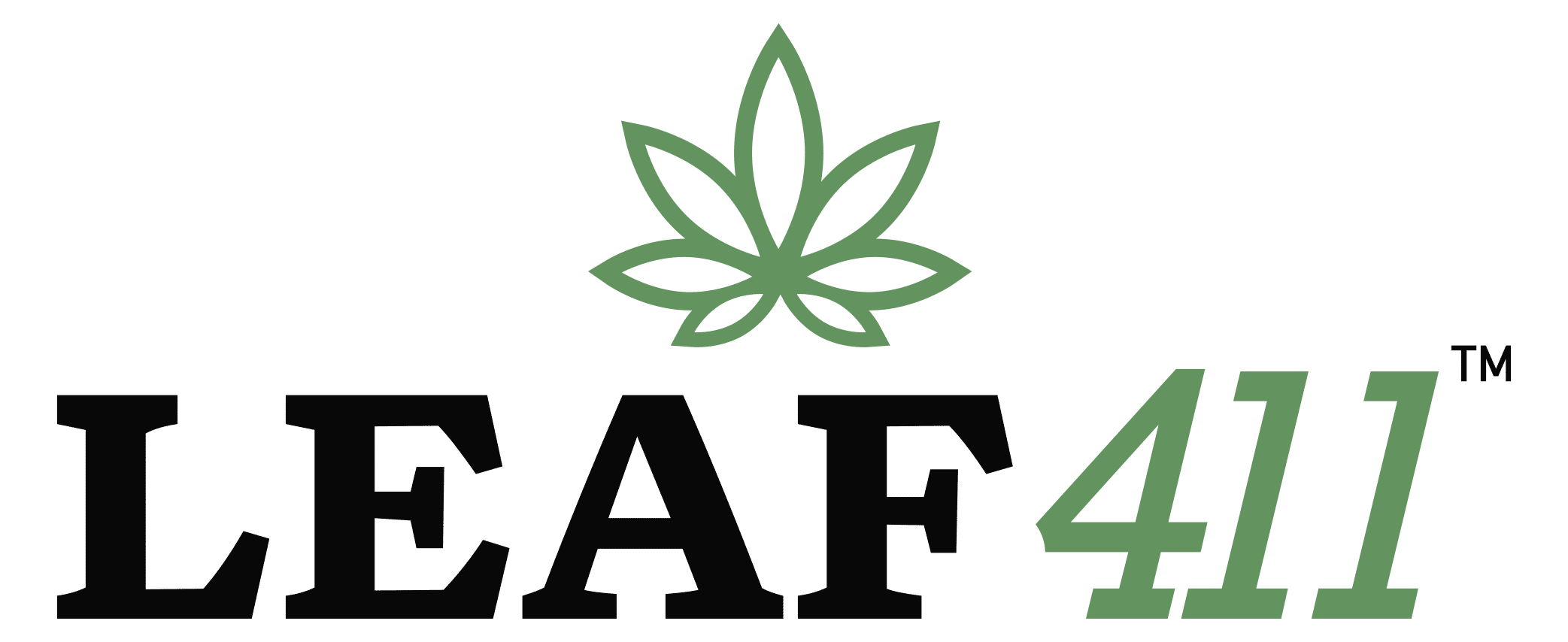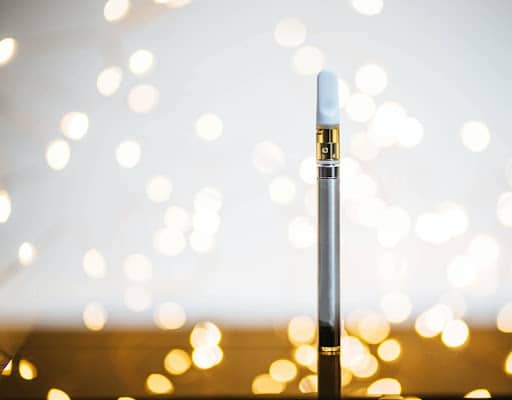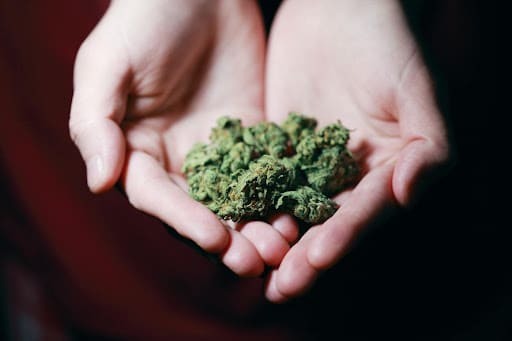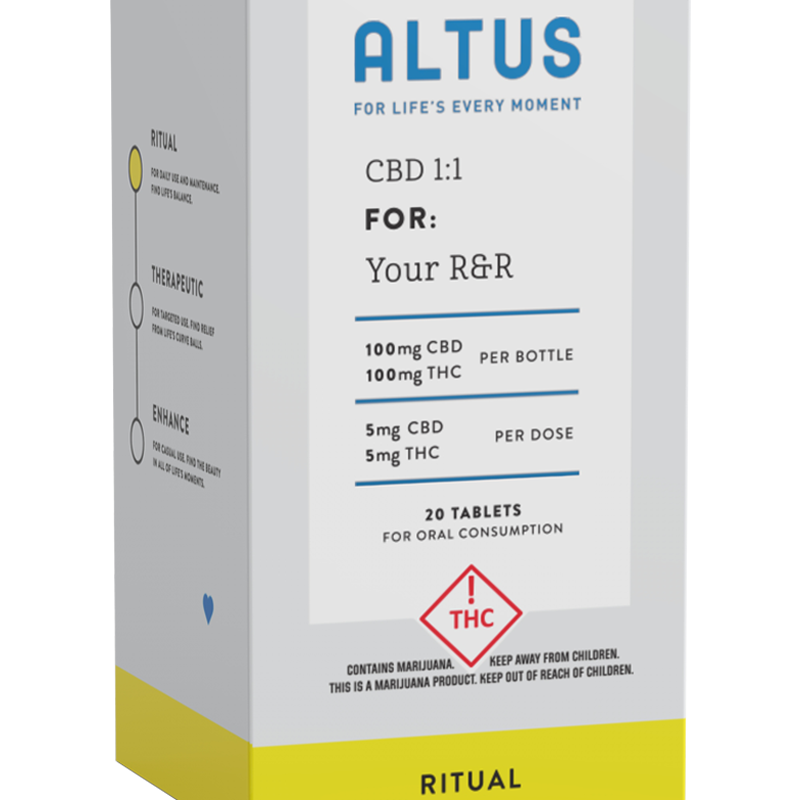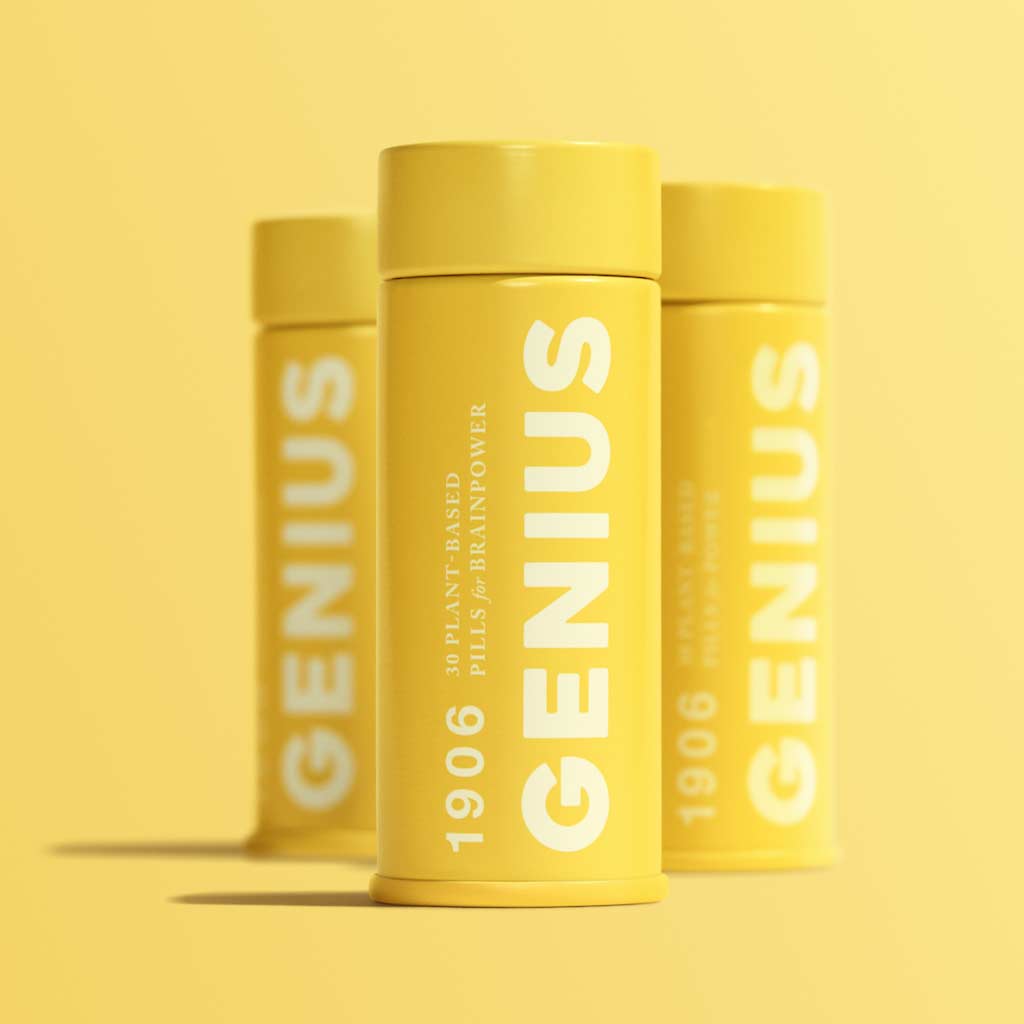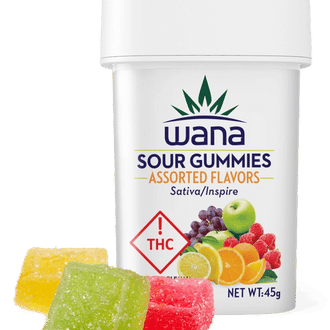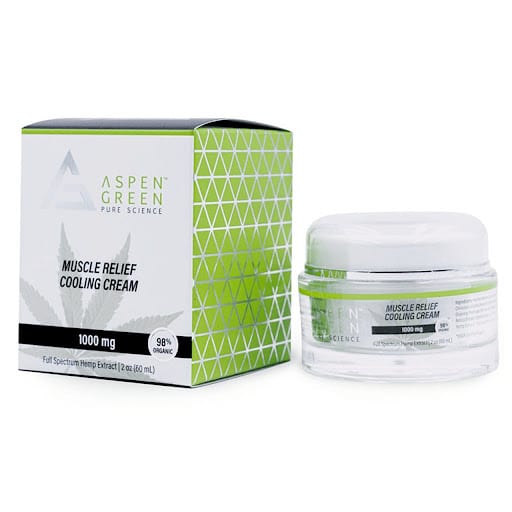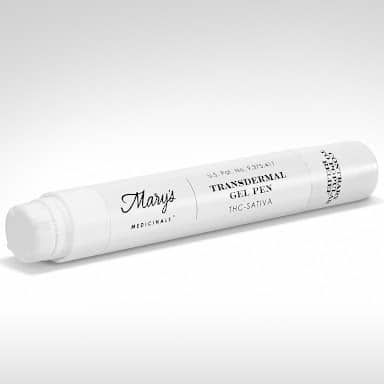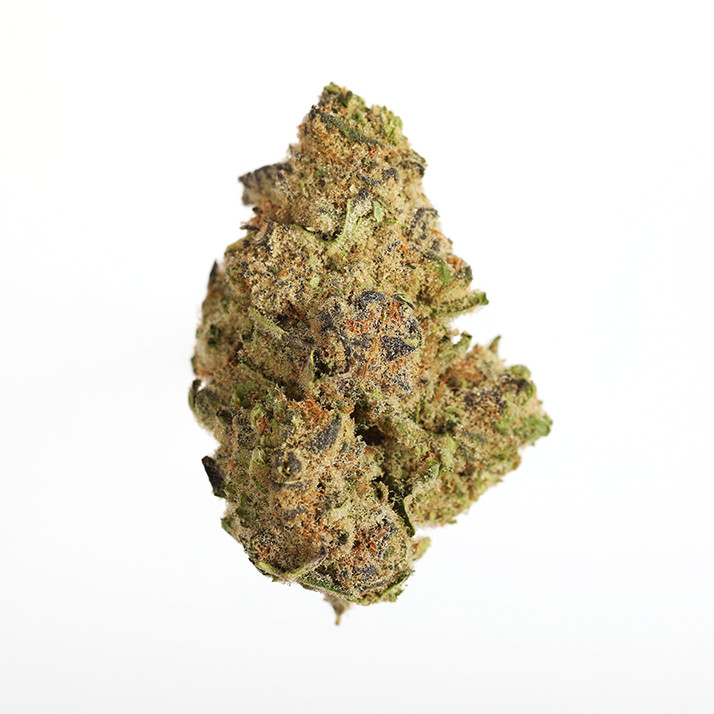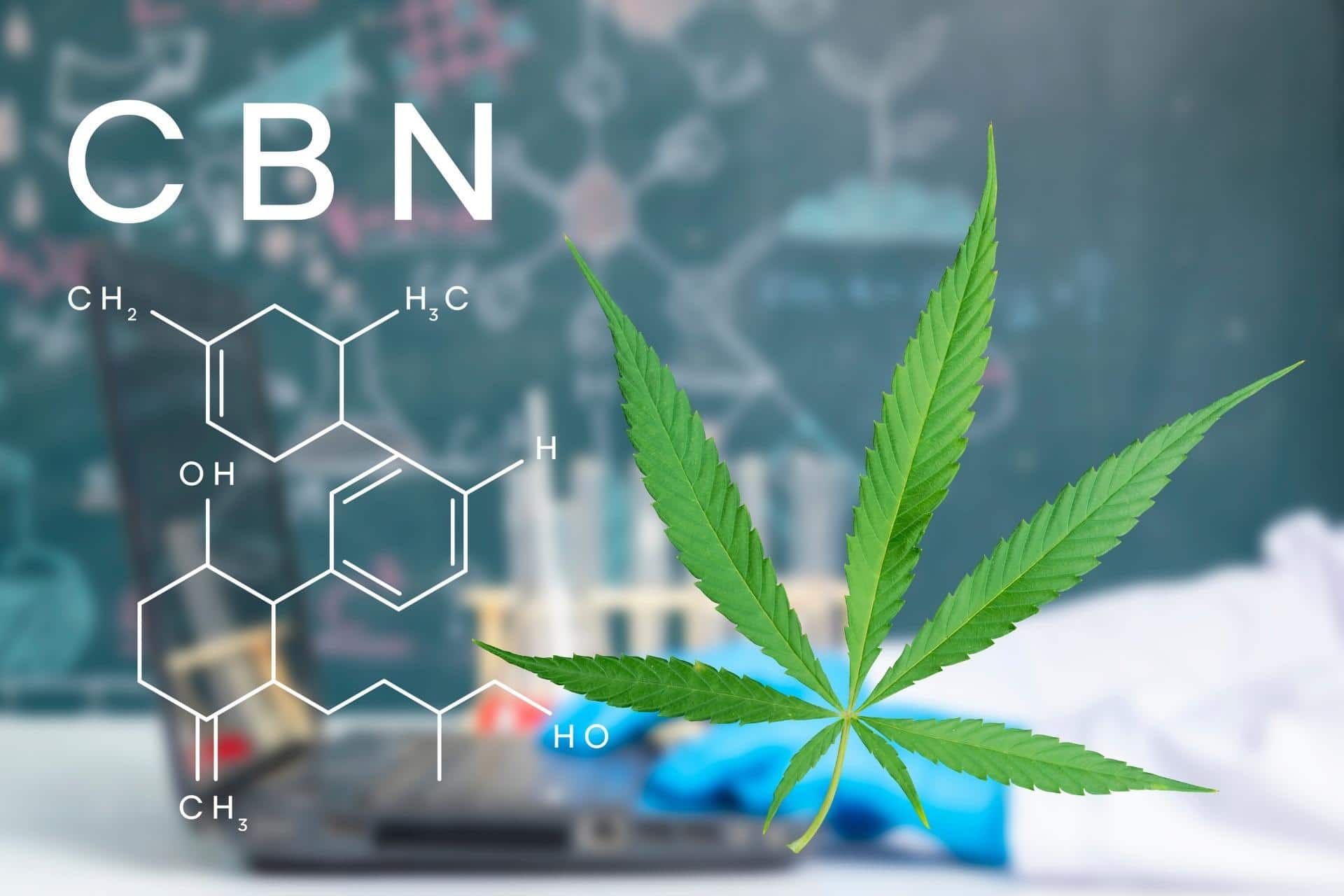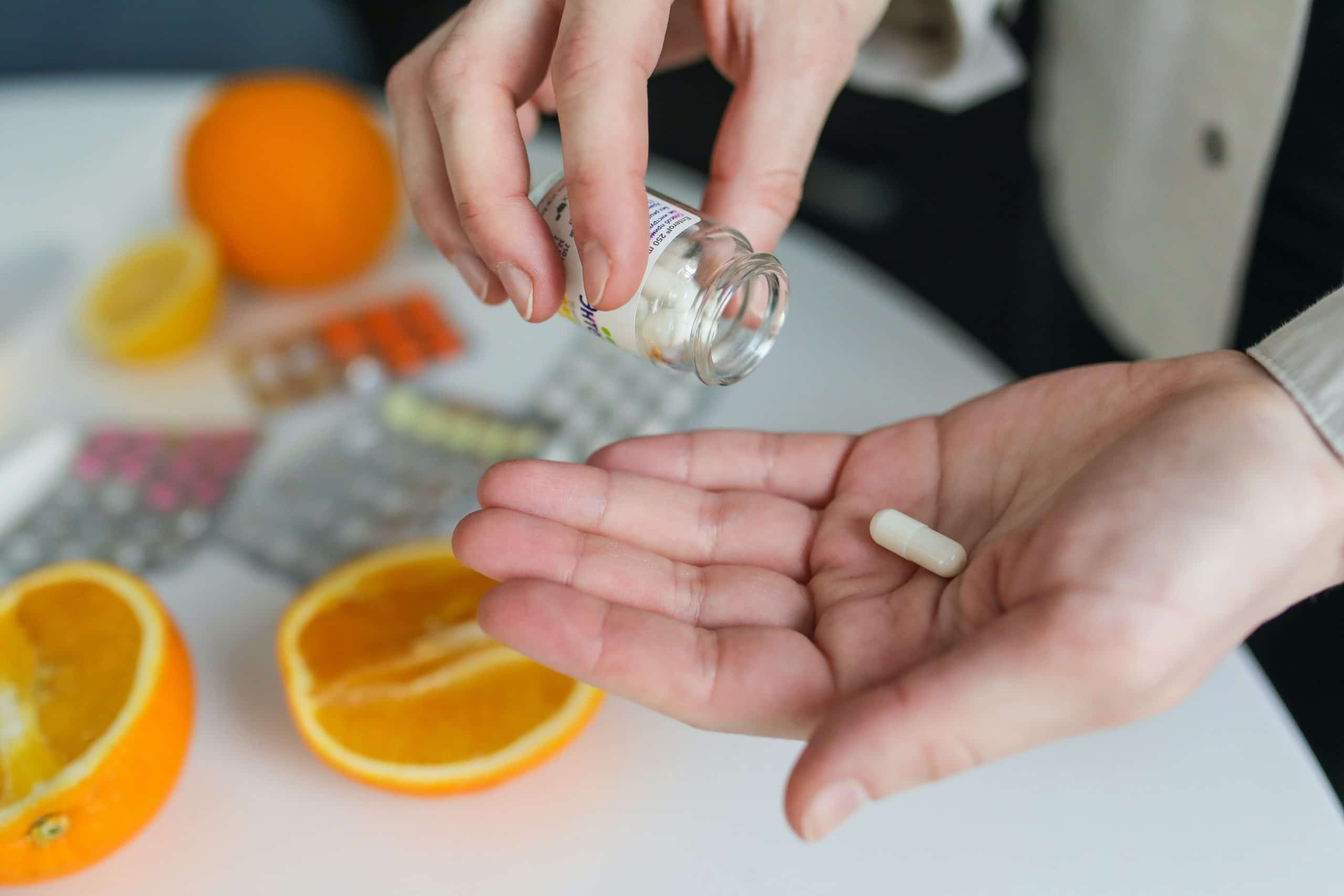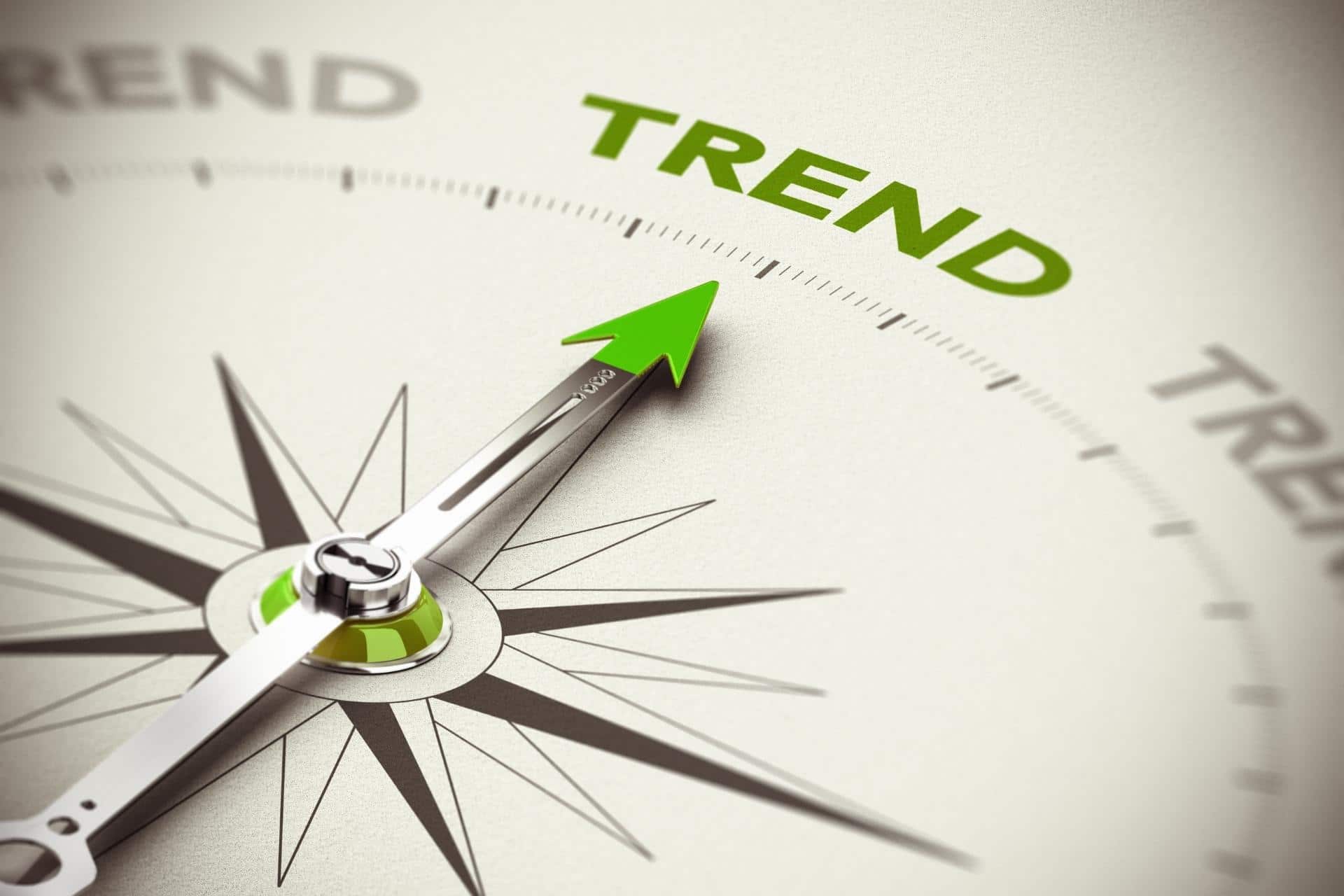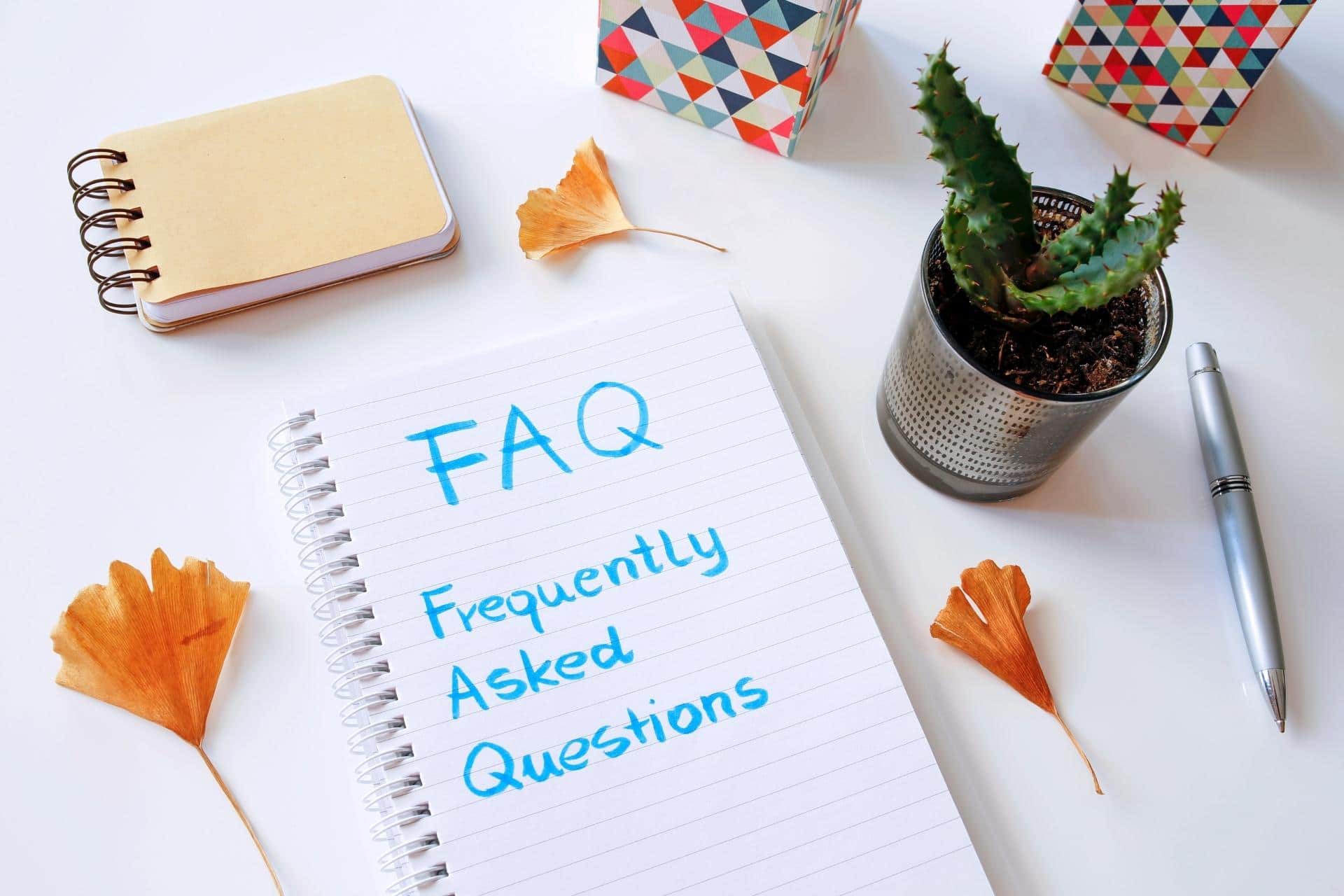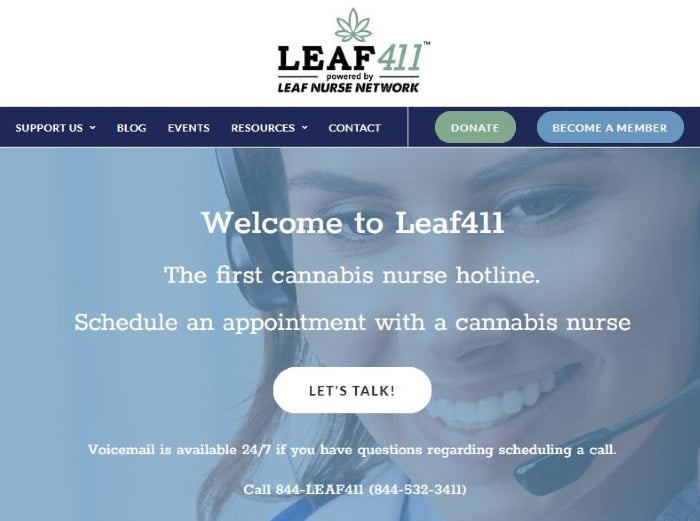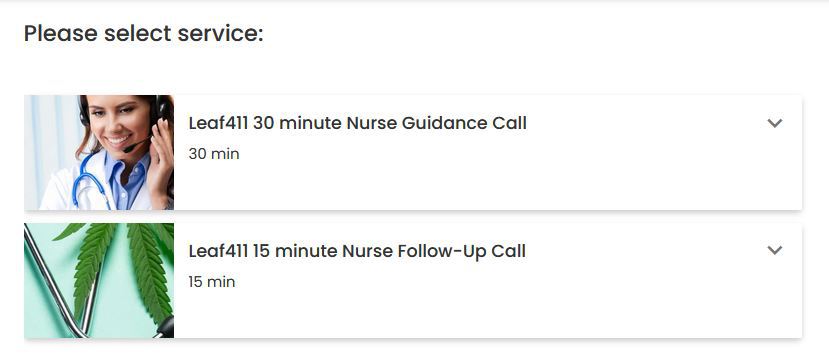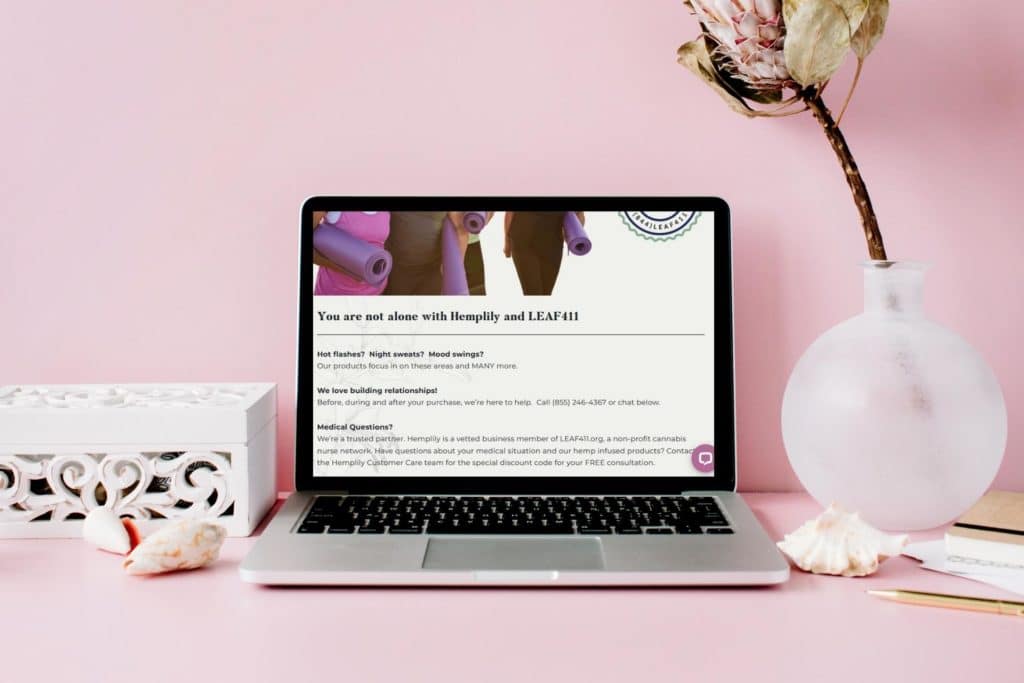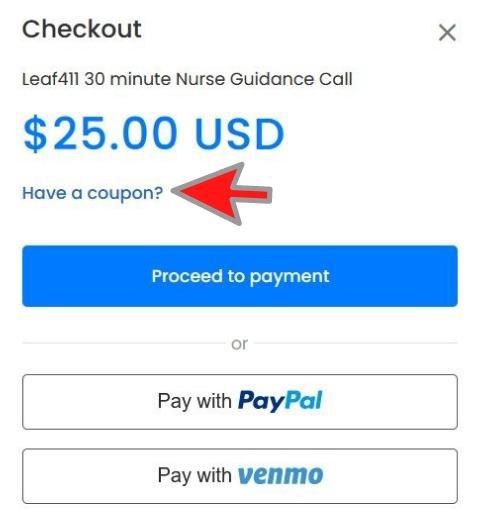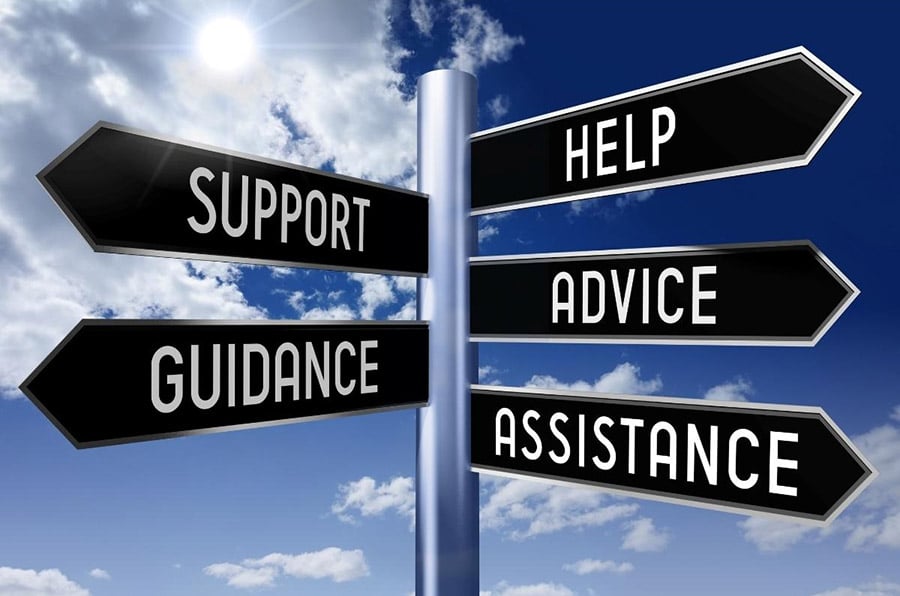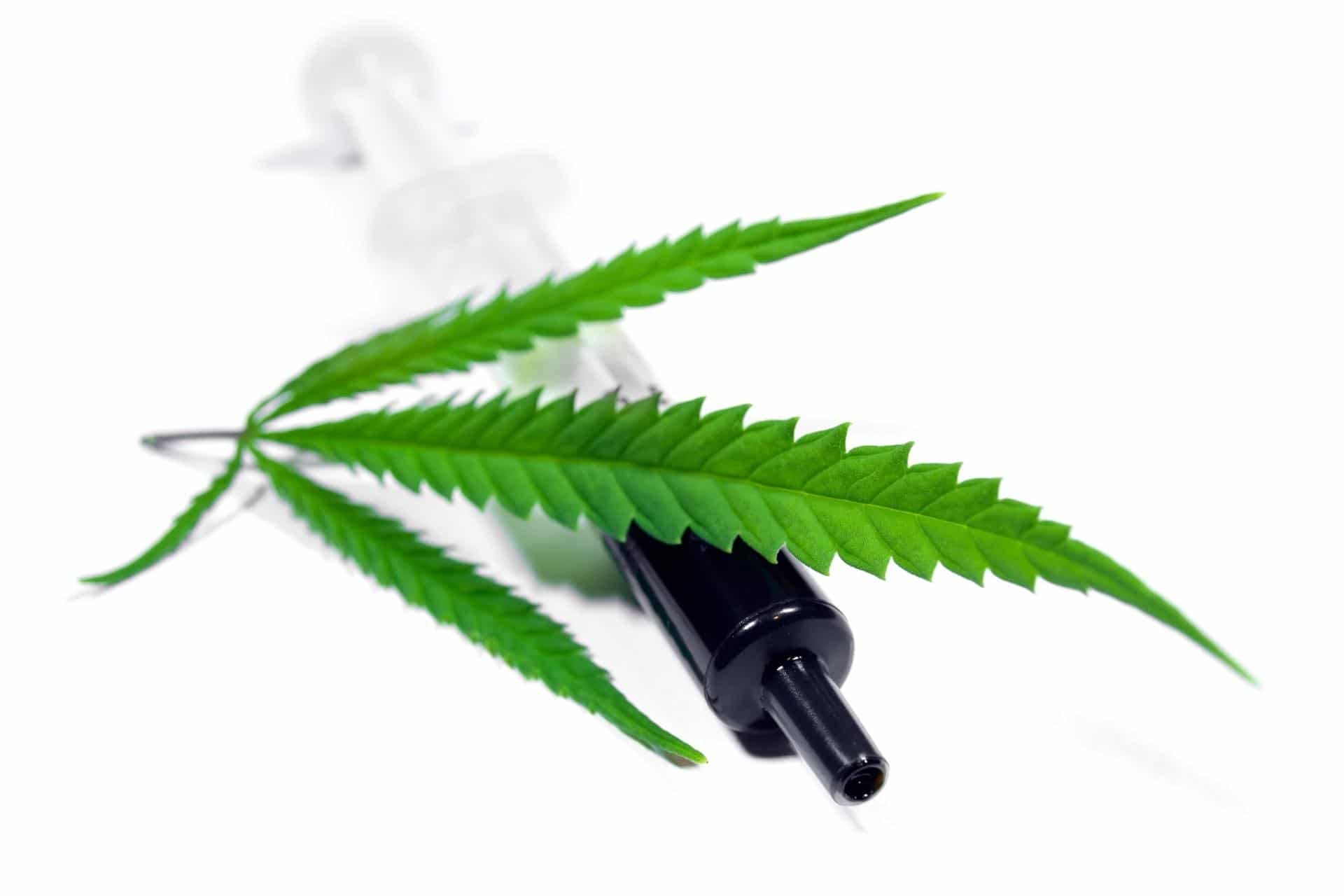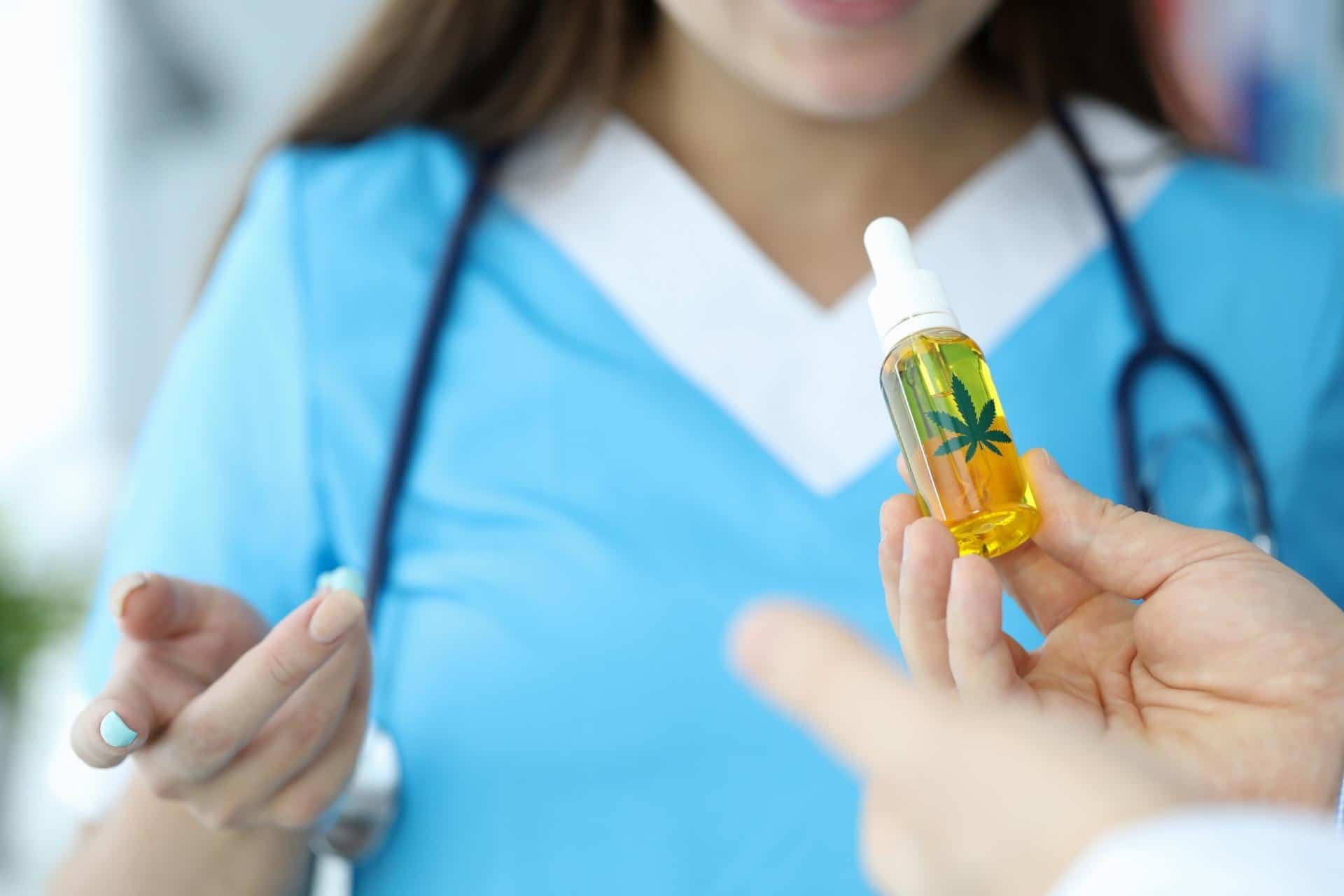Cannabis Vaping Update: Are Vapes Safe in 2022?
Three years following the vape lung disease outbreak, consumers should still use caution when selecting a cannabis vaping product
By Katherine Golden, RN
Understanding the Vape Crisis
Our mission at Leaf411 is to provide balanced information and guidance for the safe and effective use of cannabis. When thousands of U.S. citizens became ill and hospitalized with a lung injury associated with vaping in 2019, consumer concern about cannabis vaping increased dramatically. The illness, which became known as “e-cigarette or vaping use-associated lung injury” (or EVALI) resulted in 68 reported deaths by February 2020. Researchers determined the likely cause of the illness was additives in the vape cartridges. This included additives like vitamin E acetate, MCT oil and others that were being used in some THC-containing vape cartridges, primarily in the illicit market. Leaf411 wrote about the issue at the height of the crisis to give consumers the best information on how to use vape products safely.
Today, the U.S. Centers for Disease Control (CDC) reports that emergency room visits due to EVALI have sharply declined. They cite increased public awareness of the issue, the removal of vitamin E acetate and other additives from products and a law enforcement crackdown on illicit products. However, that does not mean the risk to consumers has disappeared completely.
Tips for choosing a safe cannabis vape
Leaf411 wants to remind consumers to use vigilance and common sense when purchasing cannabis vape products to ensure they are only utilizing safe, legal products. The following are tips you should consider when purchasing a vape product:
- Purchase vape products only sold through state-licensed cannabis retailers or licensed delivery services–never from the illicit market. Licensed retailers are required by the state to have their products lab tested to ensure safety.
- Do not consume cartridge concentrates that contain additives such as Vitamin E acetate, polyethylene glycol (PEG), propylene glycol (PG), MCT oil, coconut oil or any other emulsifiers or synthetic agents. While some of these ingredients are safe to eat, they are not safe to vaporize and inhale.
- Only consume concentrates that are third-party lab tested and designed specifically for vaping.
- Ask the dispensary retailer or product manufacturer to provide the certificates of analysis (COA) for the products purchased. The lab results on a COA include the cannabinoid profile, pesticide testing and other critical information about the contents of the cartridge. Budtenders, clinicians and Leaf411 nurses can help answer your questions about the COA.
Remember that the vast majority of products implicated in vape-related illnesses and deaths were purchased from illegal vendors. In addition to problematic additives, many illicit vape pods and cartridges were found to contain dangerous synthetic marijuana instead of actual CBD or THC. So never buy vape products sold through illegal market sources or from non-licensed dispensaries. These products are likely not tested and can be easily counterfeited. To find a trusted manufacturer or dispensary, please review the Leaf411 member directory.
The Leaf411 cannabis nurse hotline, chat and scheduled nurse guidance call services provide education and directional support to the general public about the safe use of legal cannabis. We partner with select business members who meet our rigorous standards to extend our education and outreach efforts.
How to Use Cannabis
From Edibles to Vapes, Leaf411 Has Your Questions Covered
by Katherine Golden, RN – Founder and CEO of Leaf411
You have options when using cannabis
When we first started taking calls on the hotline, one of the biggest surprises was hearing how many people thought cannabis has to be smoked to be effective. In fact, we even featured this misconception as our first Question of the Month back in 2019!
Many different types of cannabis and CBD hemp products are available today. These different products are designed to fit a wide variety of needs. You should consider factors such as how quickly a product will take effect, how long the effect will last, and what issues you’re targeting.
Our cannabis-trained registered nurses are always happy to answer your questions. Give us a call at 844-LEAF411 (844-532-3411) or schedule a one on one call through our scheduling link.
In our guide below, we provide information on different options for using cannabis and CBD products. You’ll also find tips for getting the right dose of this plant-based medicine.
Tinctures
CBD hemp oil tinctures contain full spectrum, broad spectrum or CBD isolate in a plant-based carrier oil. If you’re purchasing a tincture through a dispensary, read the label. Some of these tinctures may contain the medical yet psychoactive cannabinoid THC.
Tinctures are available in different strengths and typically come in dropper bottles, making it easy to adjust your dose. They can be used by placing drops under your tongue. Some of the plant compounds will be absorbed directly into your bloodstream as a sublingual if the product is designed that way. That being said, most of the product is absorbed through swallowing. Tinctures also work well mixed into already prepared foods like sauces and soups, or warm beverages like coffee or tea. Tinctures are only for oral consumption.
When it comes to tinctures, think of the carrier oil as the vehicle that the cannabinoids travel in to enter your system.
Coconut or palm medium chain triglyceride (MCT) oil are both highly effective. These are the most common carriers for tinctures because they contain smaller fatty acid molecules which are easily absorbed.
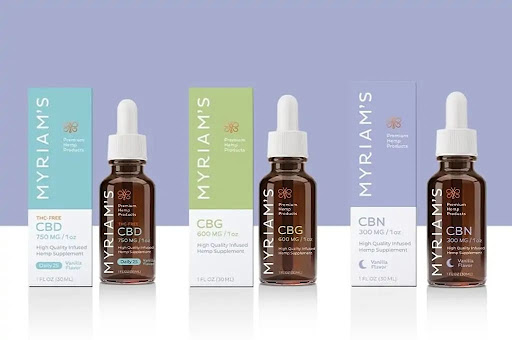
Myriam’s Hemp Tincture (MCT oil carrier)
Tablets & Capsules
Tablets and capsules containing THC or CBD provide a discrete, highly portable option. Soft gel capsules contain THC and CBD hemp in carrier oil, similar to tinctures. The carrier oil becomes especially important in these products, impacting how much of the CBD will be absorbed after the soft gel enters the digestive system. Capsules containing MCT oil or olive oil are especially effective.
Tablets are another popular option for using cannabis or CBD. This option is great because it resembles medications that patients are used to, like ibuprofen. Tablets and capsules are easy to use, discreet and familiar.
There are also sublingual tablets that dissolve under your tongue. Sublingual tablets work faster than swallowed pills since they are designed to be absorbed directly into the bloodstream.
Edibles
Edibles are a broad category containing anything…edible. This includes gummies, mints, chocolate, infused beverages and more.
Edibles face challenges moving through our digestive system. The THC, CBD and other plant compounds in edibles take time to reach the endocannabinoid’s CB1 and CB2 receptors via the intestinal tract.
When someone eats THC, only 4% to 12% gets into their bloodstream. Eating a meal also affects the absorption of cannabinoids. A study from pharmacologists at the University of Minnesota examined how eating a meal affects the absorption of CBD.
Also, edibles take longer to kick in. Many new users quickly decide that a single dose didn’t work and eat more. This can lead to an unwanted “high” several hours later when multiple doses suddenly take effect. We suggest that you wait at least two hours after eating an edible dose before deciding whether you need more.
Also, double-check the product label for dosage. In the non-cannabis realm, we’re used to the idea that one candy bar equals one serving. However, when it comes to products containing THC or CBD, the serving size is often a lot smaller.
Topicals
Topicals encompass a rapidly growing category that includes creams, gels, salves, and beauty products. The name implies that they are topically applied to your skin.
CBD topicals may work well for you if you are concerned about medication interactions. It’s also a popular option for people with arthritis who are seeking spot relief, as well as athletes looking for post-workout recovery.
Topicals that combine CBD and THC are a popular choice, as well as THC-only products. These are only available at dispensaries in states that have legalized cannabis.
Many of these products include a blend of essential oils and plant terpenes designed for localized pain relief, inflammation or improved pleasure with intimacy. THC topicals may include bath salts, massage oils, and creams. The cannabinoids in topical products interact with CB2 receptors in your skin but are not absorbed deeply enough to impact CB1 receptors. This means that they are very unlikely to deliver impairing effects. One exception to this is when topicals containing THC are considered “transdermal” or applied to mucous membranes. This includes mouth, nostrils, vulva or rectal tissues. Read more on transdermal products below.
Transdermal Patches and Pens
You might think that transdermal patches or gels are topical, since the medicine is absorbed into your skin. However, transdermal products provide a unique delivery through the skin. This method provides controlled release of cannabinoids directly into the bloodstream over a set period of time.
Transdermal drug delivery has a great advantage over oral administration. It avoids digestion and absorption of the gastrointestinal tract. As a result, transdermal delivery largely reduces drug toxicity and bypasses the first effect of drug absorption. This means more cannabinoids make their way into your bloodstream.
Mary's Medicinals Transdermal Gel Pen
Inhaling cannabis and CBD Hemp Flower
For many people, the first image that comes to mind when they hear “cannabis” is the plant flower that is smoked. In fact, the odds are that if you’re over the age of 30, your first experience with cannabis was smoking plant flower.
The cannabis plant has been smoked by humans since ancient times. Its status as an illegal substance in the United States is a tiny blip in time, when compared to its use throughout history. For many people, cannabis or CBD hemp flower remain their top choice for consumption.
Seed & Smith’s Mimosa (Clementine x Purple Punch) strain is good for relaxation.
Cannabis flower and CBD hemp flower is minimally processed and provides a range of plant benefits. Many different flower strains are available in the states with legal cannabis. Cannabis strains (chemovars) offer different ratios of THC, CBD and other cannabinoids. In addition, cannabis and hemp flower strains provide a range of terpene profiles that can add to the plant’s synergistic entourage effect.
Inhaling cannabis or CBD hemp flower, whether through smoking or vaping, provides a quick onset of the plant’s benefits. Smoking is also an integral part of cannabis culture used as a ritual for communities to come together socially.
Flower can be smoked with a bong or water pipe, with the flower placed into a bowl and ignited by flame. The smoke then passes through water, which cools it before being inhaled. Flower may also be smoked with a pipe.
You can roll cannabis flower into joints or buy pre-rolled joints. Pre-rolls provide a cheaper, easier option for sampling different strains.
Pay attention to any added ingredients as well. Some pre-rolls include added hash oil or kief to increase potency.
When you put a flame on a joint or bowl, you heat the flower to a point where the plant cannabinoids and terpenes combust into smoke so they can be inhaled. However, you’re also creating other combustion byproducts that carry their own side effects. While smoking is effective, it carries more risks and side effects than other methods of consumption.
Vaping cannabis and CBD Hemp
Vaping provides many of the benefits of smoking cannabis, without the concerns about combustion-related byproducts.
That being said, vaping-associated illnesses were in the headlines throughout much of 2019. The source of illness was narrowed down to illegal market vape cartridges which often contained vitamin E acetate or other contaminants. We previously shared our insights into the crisis in this blog post.
At Leaf411, we believe that vaping flower can provide a highly effective, fast-acting option for some people in need of a treatment option for pain or anxiety/panic attacks. However, we encourage you to seek advice from a qualified cannabis clinician for specific dosing recommendations.
Desktop and portable dry herb vaporizers are designed specifically for flower. These vapes don’t ignite the plant material with flame. Instead, they cook it, releasing the cannabinoids and terpenes in a vapor mist instead of smoke. This creates a smoother inhalation experience. Many dry herb vaporizers also let the user control the temperature, which impacts which cannabinoids and terpenes are released.
Although most medical practitioners will suggest only vaping flower, reputable vape oil devices can provide an even more customized experience, with a wide range of products available. Some vapes even connect to smartphone apps, much like a FitBit, allowing you to track your favorite products, temperature ranges and doses.
A word of caution, vape cartridges may also contain additional additives and thinning agents to improve performance in vape devices. It’s important to check vape cartridge ingredients to ensure that the cartridge doesn’t contain vitamin E acetate, polyethylene glycol (PEG), propylene glycol (PG), MCT oil, coconut oil or any other emulsifiers or synthetic agents. You can find additional tips for selecting a safe vape here.
The Leaf411 cannabis nurse hotline provides education and directional support to the general public about the safe use of legal cannabis. We partner with select business members who meet our rigorous standards to extend our education and outreach efforts.
What is CBN and Can it Help With Sleep?
by Katherine Golden, RN – Founder and CEO of Leaf411
As sleep research advances, so does the understanding of how various cannabinoids like CBD and THC may support improved rest. Below, we’re sharing a quick primer on sleep. Then we will take a look at CBN, a cannabinoid that’s being widely talked about as beneficial for sleep.
Understanding sleep cycles is important
Sleep should be simple, right? Lay down, close your eyes and naturally drift into restful, rejuvenating sleep.
Unfortunately, sleep is a battle for many of us. From tossing and turning to experiencing physical discomfort as we settle down for the night. Even once asleep, some people struggle to stay asleep long enough to get the benefits of a good night’s rest.
A basic understanding of major sleep cycles can help when it comes to choosing the best hemp or cannabis products for your needs.
- Non-REM sleep: This takes up the first three phases of sleep. Non-REM sleep occurs when you drift into a light sleep then move into deeper rest.
- REM sleep: This follows non-REM sleep. Most dreaming occurs at this stage of sleep. However, REM sleep’s importance goes well beyond good dreams. REM sleep is also connected to overall brain health and is believed to boost the immune system.
For treatment, clinicians often start by identifying where a patient is encountering difficulty. Is there difficulty falling asleep or staying asleep for the desired length of time? That information can provide valuable clues into the hemp or cannabis product -formulation that may work best. It can also help identify the specific cannabinoids to focus on.

So what exactly is CBN?
Cannabinol (CBN) is created from THC that has been exposed to UV light and oxygen. This exposure leads to a chemical breakdown that transforms the THC into CBN. As cannabis flower ages, its THC will slowly and naturally convert to CBN. Cannabis extractors have also created processes for speeding up the conversion of THC into CBN oil.
Recently, consumers have reported CBN is a useful nighttime remedy. This has fuelled its use in more and more products. Now, cannabis and hemp manufacturers are creating new products that feature CBN because of CBN’s potential natural sedative effects.
But does CBN actually work for sleep?
At Leaf411, we believe the anecdotal research supports many manufacturers’ claims about CBN.
For example, one of our members, Myriam’s Hope Hemp, shared anecdotal data with us based on their customer feedback. Their customers found higher doses of CBN (between 15-40mg) to be helpful for falling and staying asleep. This is just one of many reports Leaf411 has found around CBN’s value.

Tips for finding the right CBN, CBD, or other cannabis product for falling asleep and staying asleep
Falling asleep is one challenge. Staying asleep is another.
Difficulty falling asleep?
Consider using a fast-acting product. You’ll want to use the product about 30 minutes before you want to fall asleep. Examples of fast-acting products from our members include Wana Optimals Fast Asleep Gummies with THC, CBD, CBN, CBG and melatonin. Also, Impact Naturals Rest capsules with CBD, CBN and melatonin.
Difficulty staying asleep?
Consider taking a longer-acting product that is not labeled as fast-acting. Elixinol’s Sleep Good Night capsules containing CBD and melatonin are a great example. These hemp capsules are longer lasting with a slower onset. While these products take longer for effects to kick in, those effects also last longer through the night.
Find the combination that works for you
You may find it helpful to layer CBD or CBN with different natural over-the-counter sleep products. In fact, many products like those listed above already stack several different beneficial compounds.
Always ask your doctor about prescriptions
If you’re already taking prescription medications that make you drowsy as a side effect, talk to your doctor. We strongly recommend you check in with your prescribing clinician before adding CBD or THC products to the mix, to avoid any unwanted effects. This also includes sleep medications like Lunesta (eszopiclone), Sonata (zaleplon), or Ambien (zolpidem).
CBN is only one of several cannabinoids that may help with sleep. Both CBD and THC as well as plant terpenes can also play an important role in your sleep routine. Check out our past blog on THC, CBD and sleep to learn more, as well as our blog on finding the best cannabis product to support sleep goals.

Finding sleep-focused hemp and cannabis products you can trust
Our Leaf411 business members have all been through our vetting process, which includes ensuring their products are fully tested and reliable. We’ve included a list of our members below. Most of them offer products geared toward a good night’s rest, including some who offer products which contain CBN.
Keep in mind that effects may vary due to individual differences in people’s endocannabinoid systems. If you don’t get the result you’re seeking, please reach out to our Leaf411 nurses. Our nurses are knowledgeable about how different cannabinoids may impact sleep onset and duration. You can schedule a guidance call at this link.
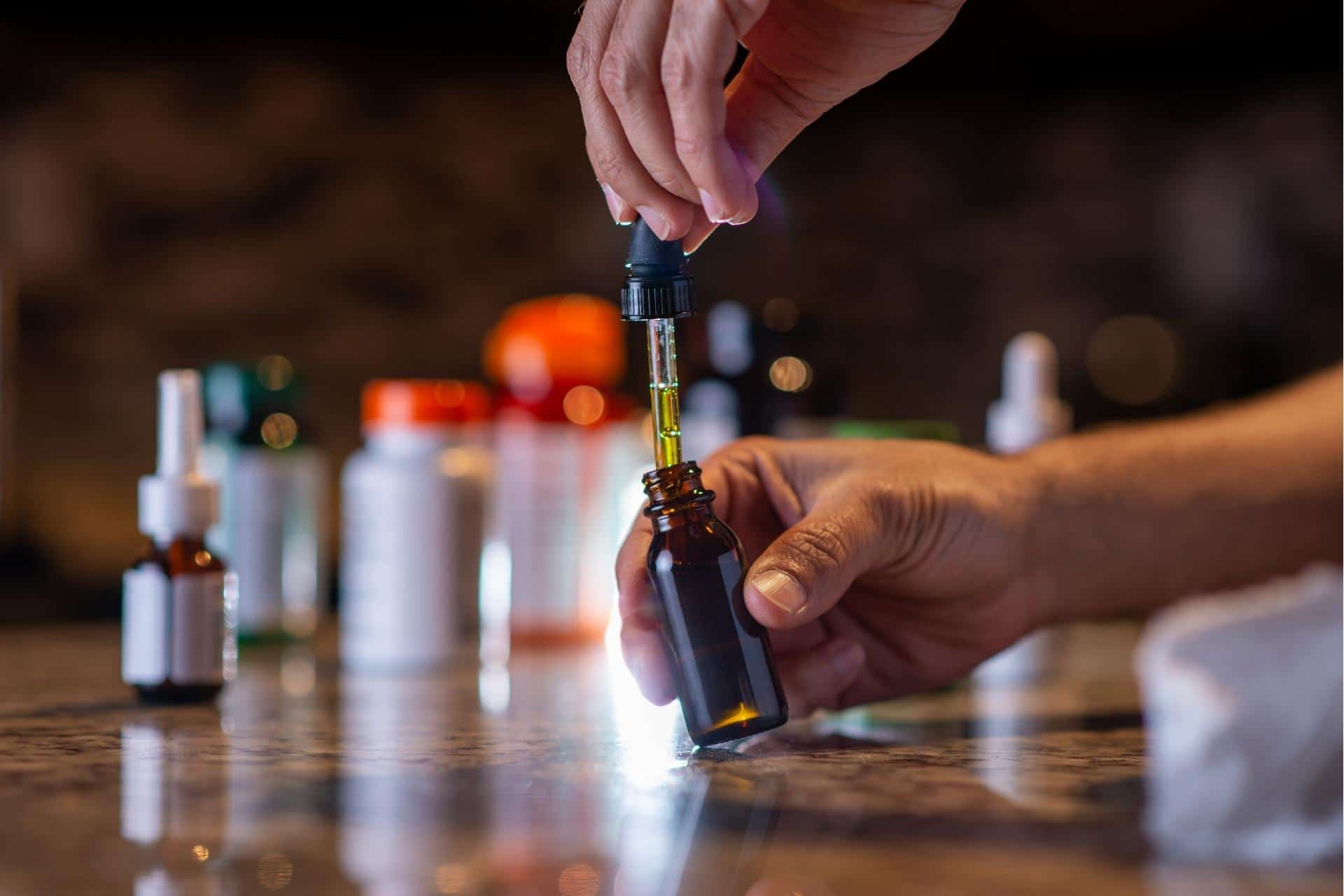
Leaf411 can help with your questions about using hemp and cannabis
Our Leaf nurses can guide you to new approaches for improving restfulness and achieving your sleep goals. Whether you’re brand new to hemp or cannabis or an experienced user, we are here to help
Get started by scheduling a low-cost guidance call with one of our Leaf411 nurses at this link. We understand cost may be a barrier for some. That’s why we’ve collaborated with our business supporting members to offer a special code to offset the cost. Just click on any of our Vetted Members’ logos to go to their website and call their customer service number. Then, their agents will provide a special Leaf411 code for you.
The Leaf411 cannabis nurse hotline, chat and scheduled nurse guidance call services provide education and directional support to the general public about the safe use of legal cannabis. We partner with select business members who meet our rigorous standards to extend our education and outreach efforts.
Considering Trying CBG? Here’s What You Need to Know
Learn what CBG is, how to use it, and what makes CBG different from CBD and other cannabinoids
Medically reviewed by Katherine Golden, RN, and Eloise Theisen, NP
Written by Denise Rustning
Many of our Leaf411 business members offer hemp and cannabis products that go far beyond THC and CBD, including rare cannabinoids like CBN, CBG, CBDa, THCv and more. In fact, cannabis and hemp plants contain over 100 different cannabinoids, many with unique benefits and effects.
But it can be hard to know what to look for if you’re just getting into plant-based medicine. For this blog, we talked to KOR Medical, one of our supporting business members, to get their perspective on CBG, as well as fast-acting technology that can give these cannabinoids an extra punch. The company offers the KOR Relief Transdermal Cream, a hemp-based product that features CBG and CBD, and does not contain any THC. They also offer a range of use-driven hemp CBD products designed for Calm, Health and Sleep, combining the power of CBD with other beneficial compounds.

One thing we love about KOR Medical is that their leadership team is made up of medical professionals with extensive backgrounds in pharmaceuticals and biotech, including work on cutting-edge diagnostic technologies. The KOR Medical team understands the importance of science, precision and quantifiable results when it comes to product development and manufacturing.
KOR Medical’s work is inspired in part by their mission to provide alternatives to opioid medications.
“Our mission statement and vision is to help confront the nation’s opioid crisis by offering naturally derived options to patients and consumers who are seeking an alternative,” said Morgan Nichols, Director of Corporate Affairs, KOR Medical.
What is CBG?
CBG, or cannabigerol, is sometimes called the mother of all cannabinoids. Why is that? In short, CBG is a precursor to many other cannabinoids found in cannabis or hemp. CBG is converted to other cannabinoids like THCa and CBDa as the plant matures, or through special processes during extraction and product manufacturing.
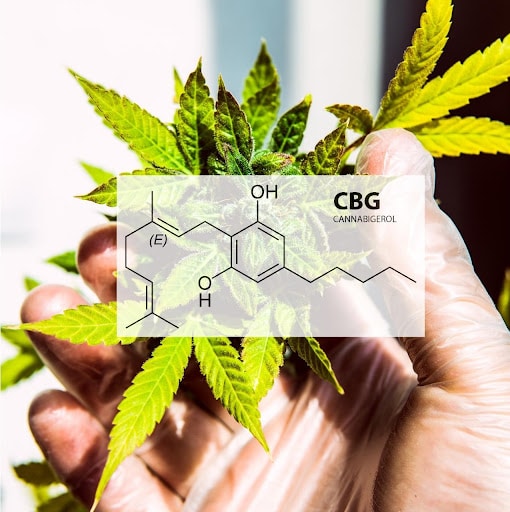
Will CBG get you high? How does CBG make you feel?
CBG is non-psychoactive, meaning it will not get you high like THC does. As the KOR Medical website explains: “CBG works by binding to CB1 receptors, strengthening the function of anandamide, an endocannabinoid. Anandamide plays a role in enhancing pleasure and motivation, alleviating pain, regulating our appetite and sleep, and more.”
Many people report that CBG makes them feel energized, calm and mentally focused when they use it. It’s a good cannabinoid to add to your daytime routine, and works well when taken together with CBD.


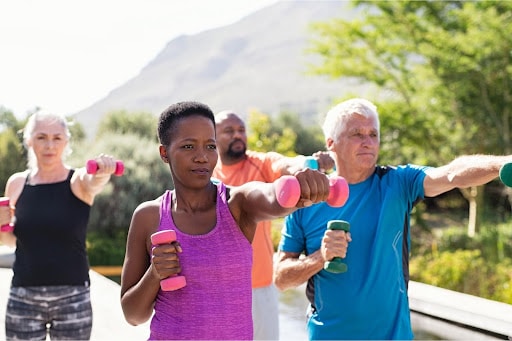
What is CBG used for?
Based on available research, CBG holds strong potential for a number of wellness goals. CBG has been shown to have anti-inflammatory, antibacterial, antifungal and analgesic properties, as well as calming and uplifting effects for adults of all ages. CBG is being used in many different kinds of topical products such as oils, creams, gels, and skin products due to its strong antibacterial and antifungal properties. Some people use CBG to reduce inflammation or muscle and joint pain. It also has been shown to be a potential benefit for a range of skin conditions and irritations.
This minor cannabinoid has caught the attention of athletes for its potential to help with recovery and boost overall wellness, which are laudable goals whether you’re a serious athlete or just looking for ways to boost your daily workout regimen.
“Part of our work at KOR Medical has been looking at how different cannabinoids work together in beneficial ways,” said David Hayek, Product Development for KOR Medical. “CBD has calming and anti-inflammatory properties which can be helpful for addressing sore joints and muscles following workouts. But when developing KOR Relief we took it a step further, looking at other available cannabinoids that might work well in conjunction with CBD to really address the issue. We found that CBG has a lot of research on its performance recovery effects as well as its antibacterial properties which are a good fit for people working out in gym environments.”
How fast does CBG take effect after ingesting a dose?
Your CBG route of administration (edible that you eat; sublingual that is absorbed under your tongue; transdermal topical applied to skin) as well as product manufacturing will impact how quickly CBG effects take effect. Generally, for a conventionally manufactured CBG product like a tincture or gummy, the effects will start in about 45 minutes to an hour, and will last for up to 6-8 hours.
Some manufacturers, including KOR Medical, have developed proprietary manufacturing practices to shorten onset time and improve bioavailability–meaning you are able to absorb more of the cannabinoids in the product, and that absorption happens more quickly.
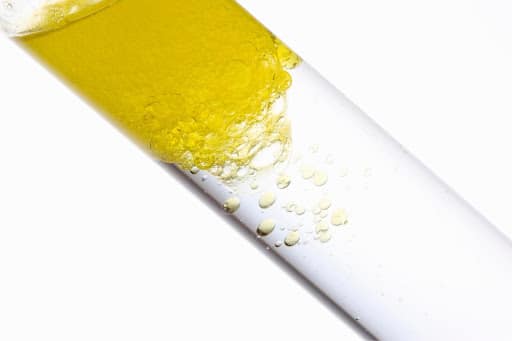
Fast-acting hemp CBD, CBG and other cannabinoids: Turbocharging hemp’s benefits
Many leading hemp product makers, including KOR Medical, are researching ways to deliver cannabinoids more quickly and effectively. Nanoemulsion technology is one approach being used to break down large oil-based cannabinoid molecules and encapsulate them inside water molecules, effectively making the cannabinoids water-soluble. This allows for faster onset and absorption via skin or mouth, instead of having to wait for the cannabinoids to work their way through the digestive system.
“The benefit of nanoemulsion is that it increases absorption, making for a more effective product,” said Hayek. “We have our own in-house nanoemulsion equipment that reflects the best in the industry, and we regularly test our products to ensure the nanotization process is meeting our high standards.”
Does your product really contain CBG? Check that COA!
Remember to always check the company’s lab results (also called Certificates of Analysis or COAs) when purchasing hemp products. A third-party COA will help confirm that the hemp edible, tincture, topical or other product contains the promised amount of CBD and any other minor cannabinoids like CBG. Many manufacturers like KOR Medical go above and beyond, also testing for molds, heavy metals or pesticides, and sharing those results as well, assuring consumers that the product is free from contaminants.
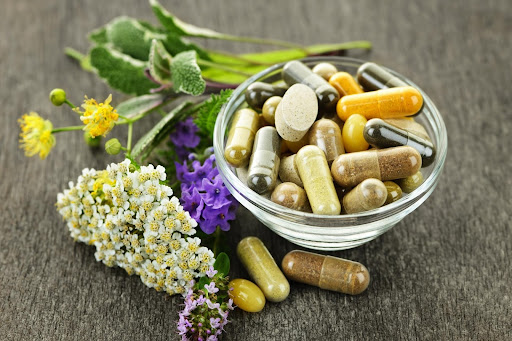
Using CBG with other natural supplements
As we mentioned earlier, CBG pairs well with other cannabinoids like CBD. KOR Relief Transdermal Cream contains 50mg CBG together with 150mg CBD and menthol to create fast-acting cooling relief that may speed up post-workout recovery.
When considering whether to buy a particular hemp product, you’ll want to closely check the ingredient label to make sure you know all the ingredients you are taking.
Take for example the KOR Medical’s KOR Sleep Strips which contain both CBD and CBN (another minor cannabinoid we recently discussed at Leaf411). KOR Sleep Strips also contain L-theanine, melatonin and tryptophan–three additional ingredients known to support restfulness. Layering these ingredients can be very effective, but it may mean that you need to adjust your other supplement use. For instance, if you’re already taking melatonin at night, you’ll want to cut back on your normal dose when using KOR Sleep Strips, since they also contain melatonin.
Many of our Leaf411 business members go above and beyond when it comes to product quality and consistency. KOR Medical tests both the cannabinoids going into their products as well as the other ingredients as well.

Setting up a CBD and CBG routine that works for you
Hemp and cannabis are often discussed as personalized plant medicine or as a personalized routine because everyone’s endocannabinoid system is different. Your endocannabinoid system contains CB1 and CB2 receptors that interact with cannabinoids, leading to beneficial effects that support your goals for using hemp or cannabis. (Check out our Cannabis 101: The Endocannabinoid System to learn more about how this process works)
Brands like KOR Medical are crafting unique hemp CBD products with minor cannabinoids and other beneficial compounds designed to optimize consumers’ experiences around specific goals, whether that’s faster physical recovery, improved restfulness or immunity support.
However, to get the best experience, you also have to take into account how your own endocannabinoid system reacts to specific cannabinoids or products. That’s why you’ll often find that a hemp CBD product that works well for your friend may not be as effective for you, or that you need to take a lower or higher dose for optimal effects.
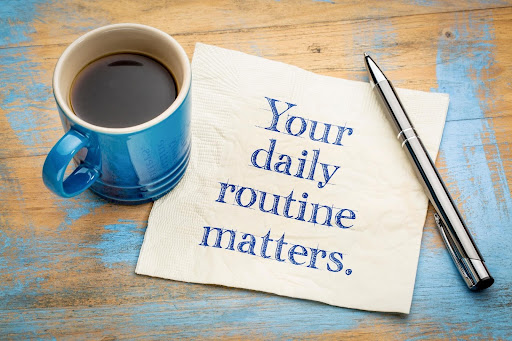
Let Leaf411 help design your optimal hemp regimen
Finding the best hemp product for your unique needs and endocannabinoid system can involve trial and error–which means time and money.
Fortunately, our cannabis-trained Leaf nurses can help! Our Leaf nurses are fully-licensed RNs with real world nursing experience, who can provide guidance on building a hemp regimen around your goals, needs and concerns. For example, our Leaf nurses will ask questions about your other medications to help identify any potential interactions.
Visit our Services page to learn more about our scheduled nurse guidance calls then head to our home page and click on “Let’s Talk” to schedule your call.
The Leaf411 cannabis nurse hotline provides education and directional support to the general public about the safe use of legal cannabis. We partner with select business members who meet our rigorous standards to extend our education and outreach efforts.

Curious about CBD consumer trends in 2022?
Recent industry report shows need for consumer education on CBD, hemp and more
Medically reviewed by Katherine Golden, RN, and Eloise Theisen, NP
Written by Denise Rustning
Cannabis analytics firm BDSA released new Consumer Insights data on CBD consumption trends in February 2022. While the data are geared toward a business audience, we thought our Leaf411 followers might appreciate a quick look at some highlights, along with Leaf411’s unique insights on current trends based on the patients and consumers we serve on our guidance line.
Consumers lack education on using CBD
One of BDSA’s top findings was just how little CBD consumers know about the products they’re using. According to the BDSA Consumer Insights report, about 40% of CBD consumers rely on friends and family as their main source of information on CBD. Yet 30% of these consumers haven’t heard of terpenes, and 10% haven’t heard the term “cannabinoids.” Cannabinoids, including CBD, CBG, CBN and others, are core to hemp and marijuana’s beneficial effects, while terpenes play a vital role in the plant’s entourage effect. A basic understanding of these plant compounds can go a long way when it comes to finding the best product for your needs.
The BDSA report doesn’t surprise us at Leaf411. Our own data show that about 40% of our calls are focused on Plant 101. We sometimes even hear inaccurate information from callers who “heard it from a friend.”
At Leaf411, we hope to be part of the solution. The BDSA report mentioned the need for brands and retailers to improve their educational outreach–we can help! If you’re a hemp CBD or cannabis brand looking to level up your consumer education game, reach out to us or consider joining Leaf411 as a business member which brings benefits for both your brand and your consumers. Click here to learn more.
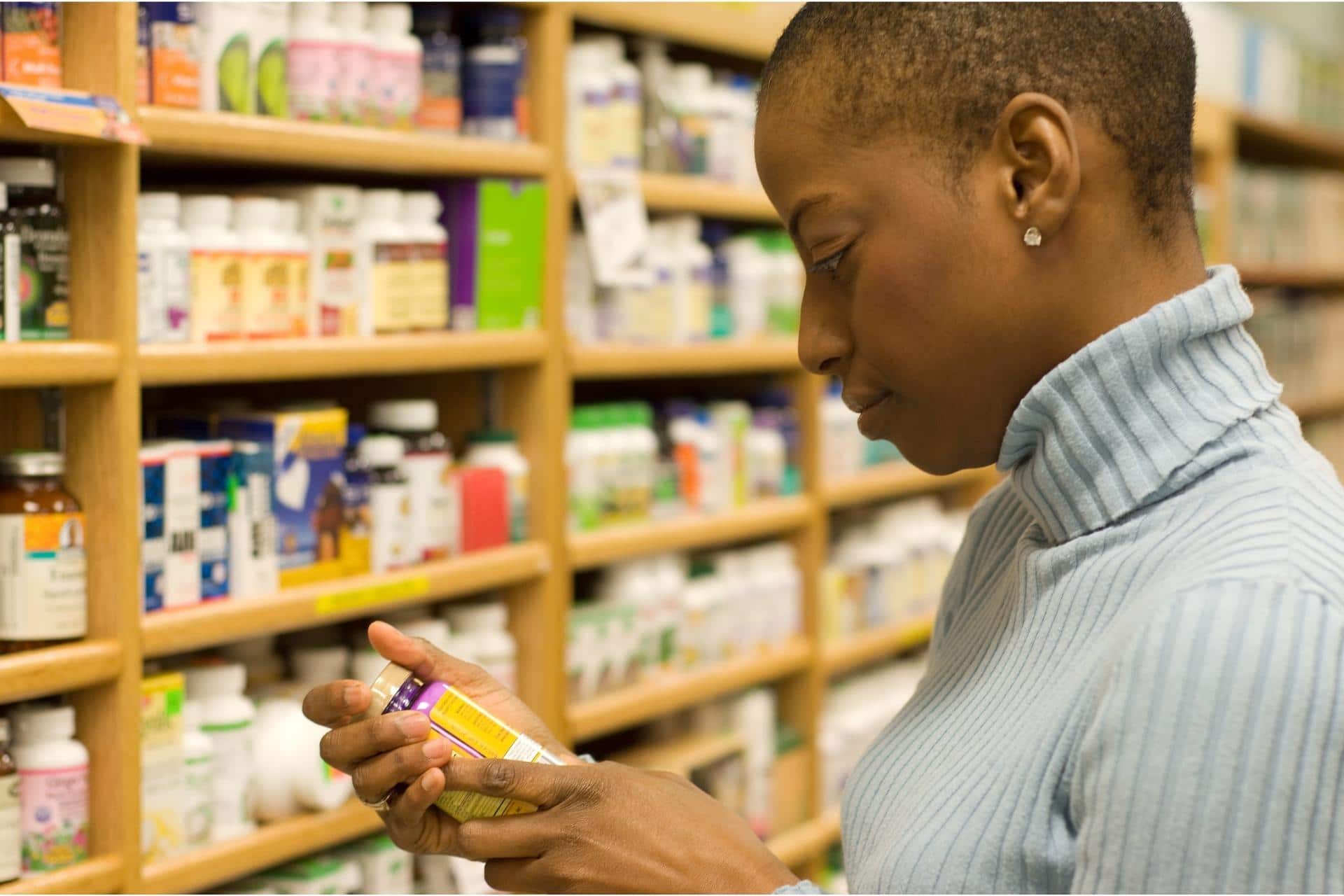
Using CBD for health and wellness? You’re not alone!
According to BDSA’s report, CBD consumers cite health and wellness as their primary reason for purchasing CBD. When it comes to specific uses, pain relief tops the list, with better sleep, stress management and anxiety management rounding out BDSA’s top four list.
While our Leaf411 caller data cuts across both hemp CBD and cannabis, we can also say that pain tops our list of conditions that callers contact us about, followed by mental health issues including anxiety and stress, and sleep issues. While the order is a bit different from BDSA’s findings, the conclusion is clear–many people are seeking alternatives for relief when it comes to these issues!

Smoke it? Not when it comes to CBD for most users
BDSA’s Consumer Insights report found that the majority of CBD consumers (around 75%) are using CBD edibles, with CBD topicals coming in second place. Only one-third of consumers report consuming CBD inhalable products including vapes, concentrates and flower.
There may be various reasons for the dominance of this CBD product format:
- CBD edibles offer a user-friendly format for new consumers who are familiar with other orally-ingested products like vitamin gummies.
- CBD edibles are portable and discreet, providing benefits without noticeable smells or smoke.
- The smokeless format may appeal to consumers’ concerns about respiratory health during the pandemic
- CBD edibles are shelf-stable and fit with other retail products sold by health foods stores, grocery stores and other general goods stores.
- CBD edibles are readily available when compared to hemp CBD flower and concentrates which can be difficult to find.
Whether you prefer edibles, topicals or inhalable products, we have fully-vetted business members who offer a wide range of hemp CBD products–visit our business member directory to learn more.
Our fully-licensed Leaf registered nurses (RNs) can also help guide you to the optimal product format for your needs, reducing the need for trial-and-error which saves you both money and time. Click this link to get started scheduling your call.
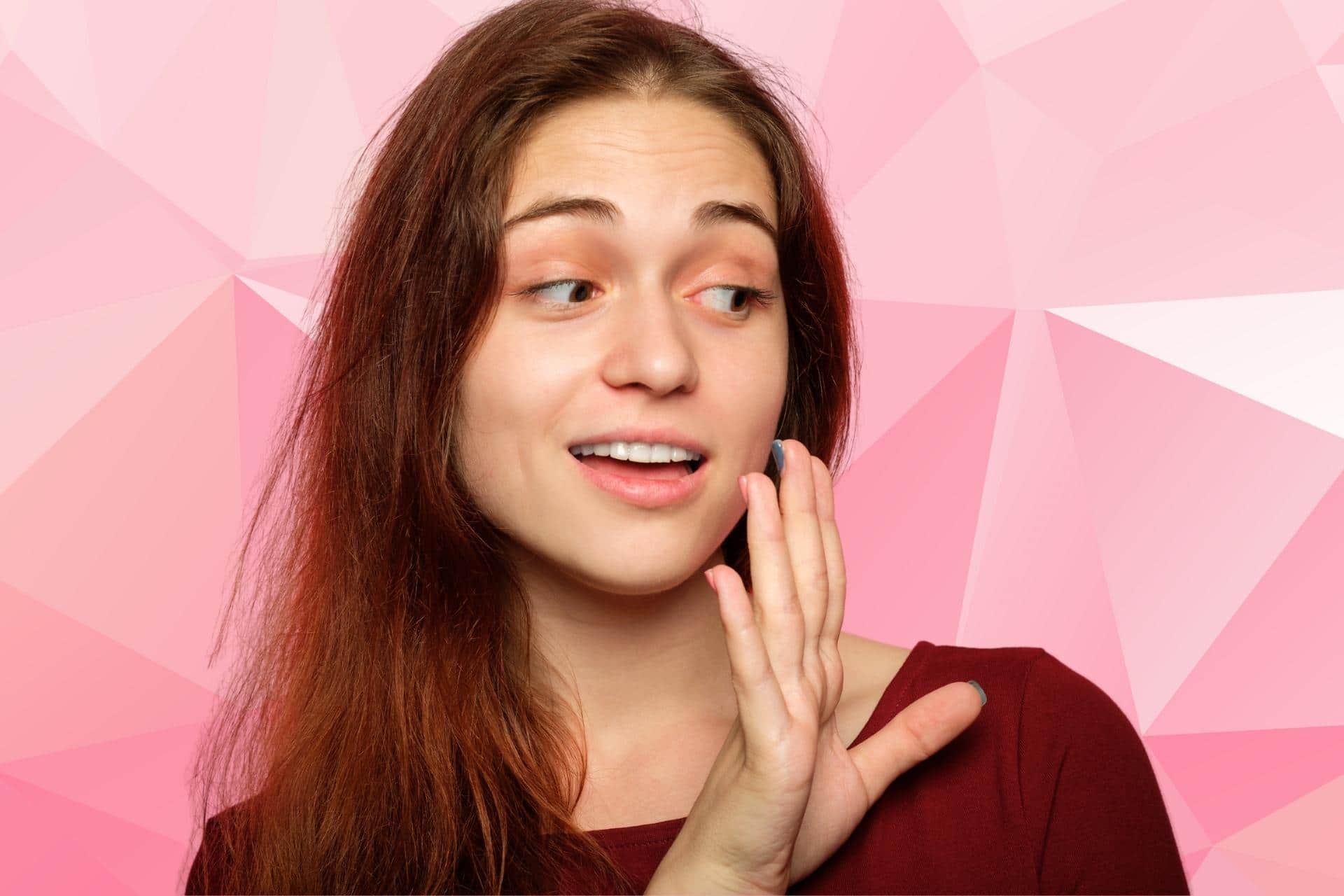
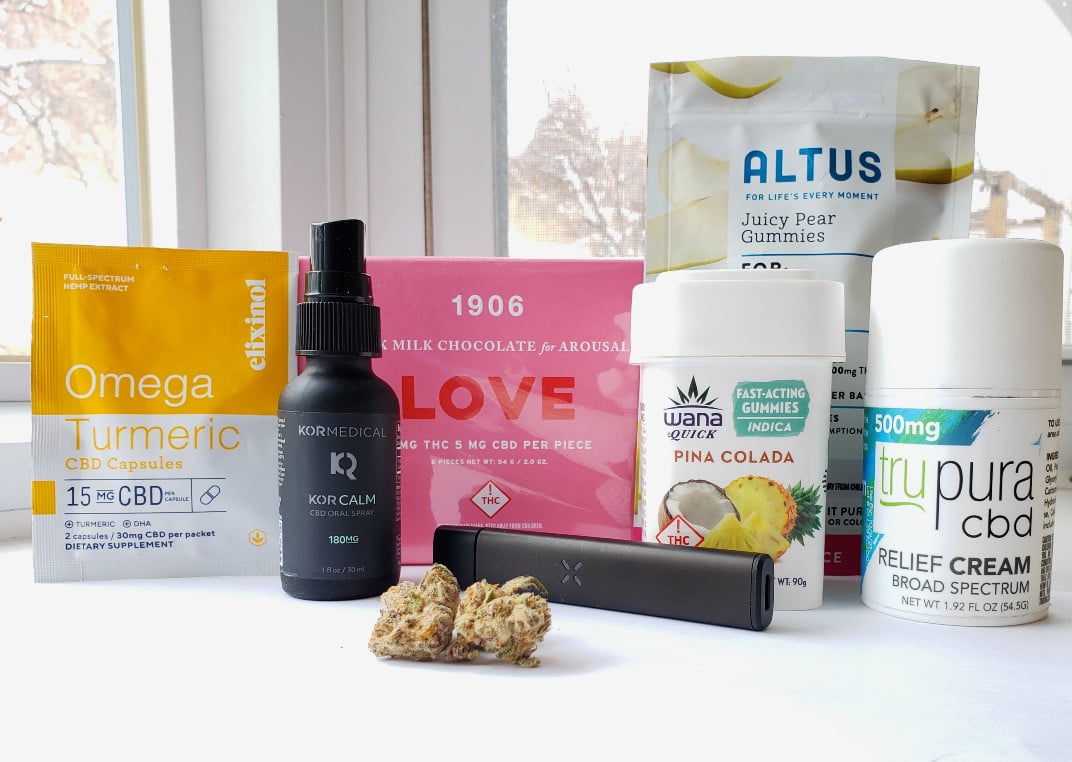
Assortment of CBD and THC products including Elixinol Omega Turmeric and CBD; KOR Calm CBD sublingual spray; 1906 Love milk chocolate edibles with 5mg THC and 5mg CBD; Wana Quick Pina Colada Gummies with 5mg THC; Altus Juicy Pear Gummies with 10mg THC; trupura Relief Cream with broad spectrum CBD; Seed & Smith Purple Punch strain flower; and a PAX Era Pro used for vaping cannabis oil extracts.
Many people use both hemp CBD and cannabis
Nearly two-thirds (65%) of CBD consumers also consume cannabis containing higher amounts of THC, according to BDSA’s report.
At Leaf411, a little over one-third (36%) of our callers report previous use of both cannabis and CBD hemp, a noticeable difference from BDSA’s Consumer Insights data. Keep in mind that the BDSA report is looking at a broad cross-section of consumers (purchases made), while Leaf411’s callers represent consumers (both thinking about a first-time purchase or have already made a purchase) seeking clinical information or guidance around specific issues.
Our Leaf nurses are here to help with your questions about CBD!
Click this link for our online scheduling service and find a day and time for your Leaf nurse guidance call. Every day our Leaf RNs help consumers and patients at all levels, from canna-curious people who’ve never used CBD or THC before, to experienced users looking for the best cannabis options to address specific health concerns.
Interested in joining Leaf411 as a business member and supporting our mission to improve access to trustworthy information and guidance on plant-based medicine? Visit our Business Membership page to learn the benefits of supporting Leaf411.
The Leaf411 cannabis nurse hotline provides education and directional support to the general public about the safe use of legal cannabis. We partner with select business members who meet our rigorous standards to extend our education and outreach efforts.

Are You at Risk for Cannabinoid Hyperemesis Syndrome?
Get answers to questions about cannabinoid hyperemesis syndrome (CHS), a rare yet concerning issue
Medically reviewed by Katherine Golden, RN, and Eloise Theisen, NP
Written by Denise Rustning
Many people rely on cannabis to help with overall wellness and health, even using cannabis as an alternative to opioids which carry risk of addiction and other unwanted side effects.
So with that in mind, what’s up with the scary-sounding condition called cannabinoid hyperemesis syndrome (CHS) that has been popping up in the news over the past year, where cannabis appears to make people sick?
What is cannabinoid hyperemesis syndrome (CHS)?
CHS was officially recognized by medical professionals in 2004. It is a complex, poorly understood medical condition triggered by cannabis use that causes abdominal pain, extreme nausea and vomiting–basically the opposite of what you would expect when using cannabis!
CHS’s primary symptom is extreme, persistent nausea and vomiting that cannot be traced to a different medical cause, hence the word “hyperemesis.”
The progression of CHS includes three phases:
- In the prodromal phase, the patient experiences early morning nausea but does not find relief in hot showers/bathing.
- During the hyperemesis stage, vomiting becomes cyclic and is relieved with hot showers and bathing, though the only long-term solution appears to be to completely stop all cannabis use.
- Recovery starts when the patient stops using THC.
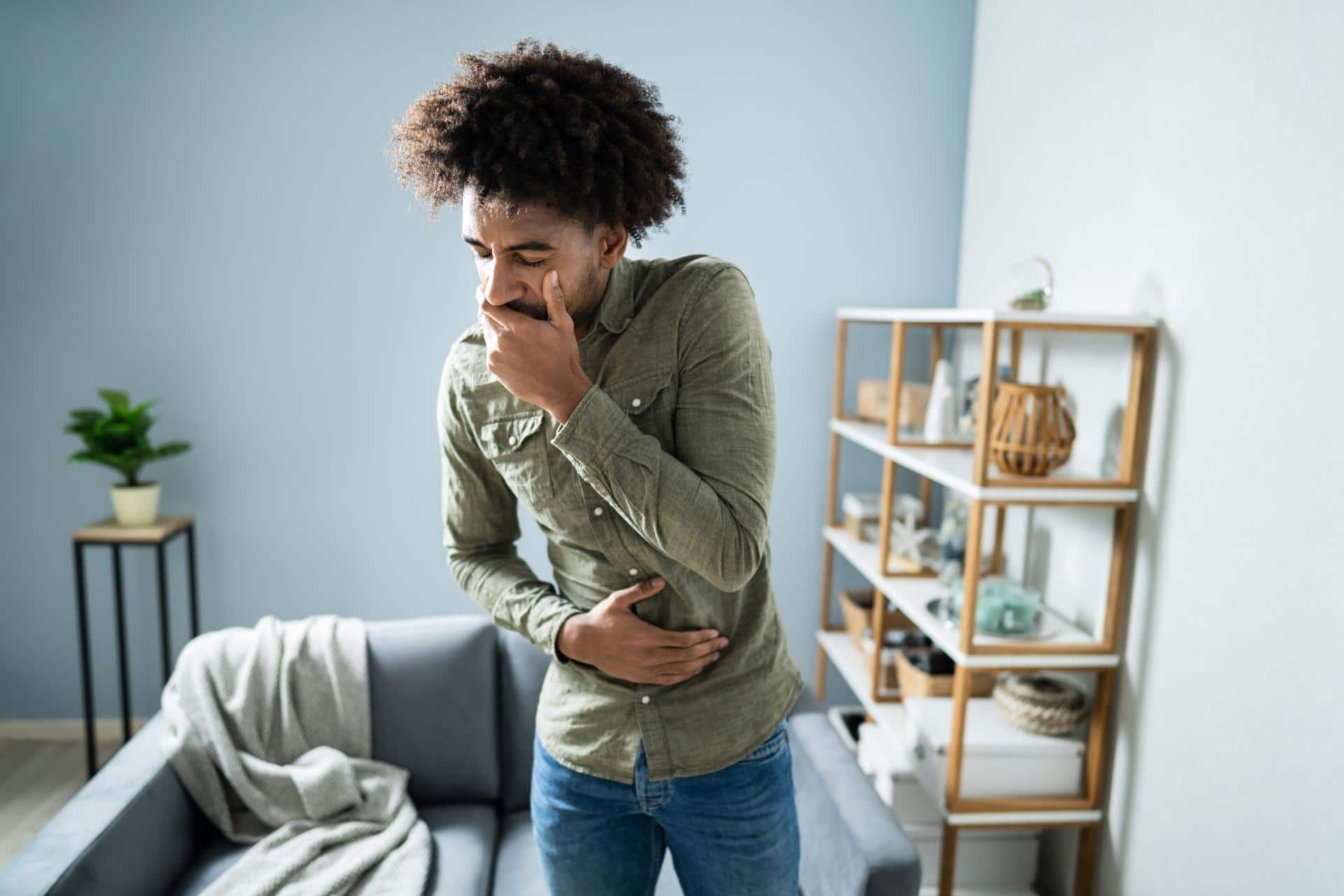
In general, CHS appears in a small number of people after long-term use of marijuana (weekly use over at least a one-year period). Some doctors have also reported seeing the condition in young people who are using a lot of high-THC concentrates, most often “dabbing” the product, even after short-term use.
One other challenge of diagnosing CHS is that the symptoms are very similar to those of cyclic vomiting syndrome (CVS) which is characterized by episodes of severe vomiting that have no apparent cause. CVS is not connected to cannabis use but can present in a similar way.
Because diagnosing CHS is often a process of elimination, ruling out other medical causes, the costs of diagnosis and care can run into tens of thousands of dollars.

Getting too high can make you nauseous – but it’s not CHS if it’s a one-time event
When it comes to cannabinoids like THC, the dose matters. Dr. Russo has discussed how many cannabinoids, including THC, have a biphastic effect. That means THC will do one thing at a low dose, and have the opposite effect at a higher dose.
For example, THC at a low dose may help with relaxation, but at a higher dose it can cause anxiety. While a low dose of THC often helps reduce feelings of nausea, a higher dose may trigger short-term nausea that goes away as the THC wears off. This short-term nausea from getting too high is different from CHS which is a chronic, long-term condition.
Are you at risk of cannabinoid hyperemesis syndrome?
You may be wondering if you’re at risk of developing CHS, especially if you use cannabis regularly as part of your daily wellness routine.
Thanks to the work of Dr. Ethan Russo and others, we do know some factors that appear to influence CHS:
- There is some evidence that repeatedly using high-dose THC may trigger CHS in some consumers, including newer users. It appears that persistent THC use causes CB1 downregulation and the receptors start to hide within the cells leaving more THC circulating and therefore causing increased side effects.
- Researchers have also looked at whether plant pesticides play a role in triggering CHS, zeroing in on NEEM in particular. However, based on a few unique CHS cases where researchers knew pesticides were not present, this hypothesis doesn’t hold water.
- Dr. Russo and others are looking more closely at genetic differences that may make some people more prone to develop CHS, focusing on specific genes. This promising research is in its early stages.
If you want to learn more, we suggest checking out Project CBD’s interview with Dr. Russo at this link.
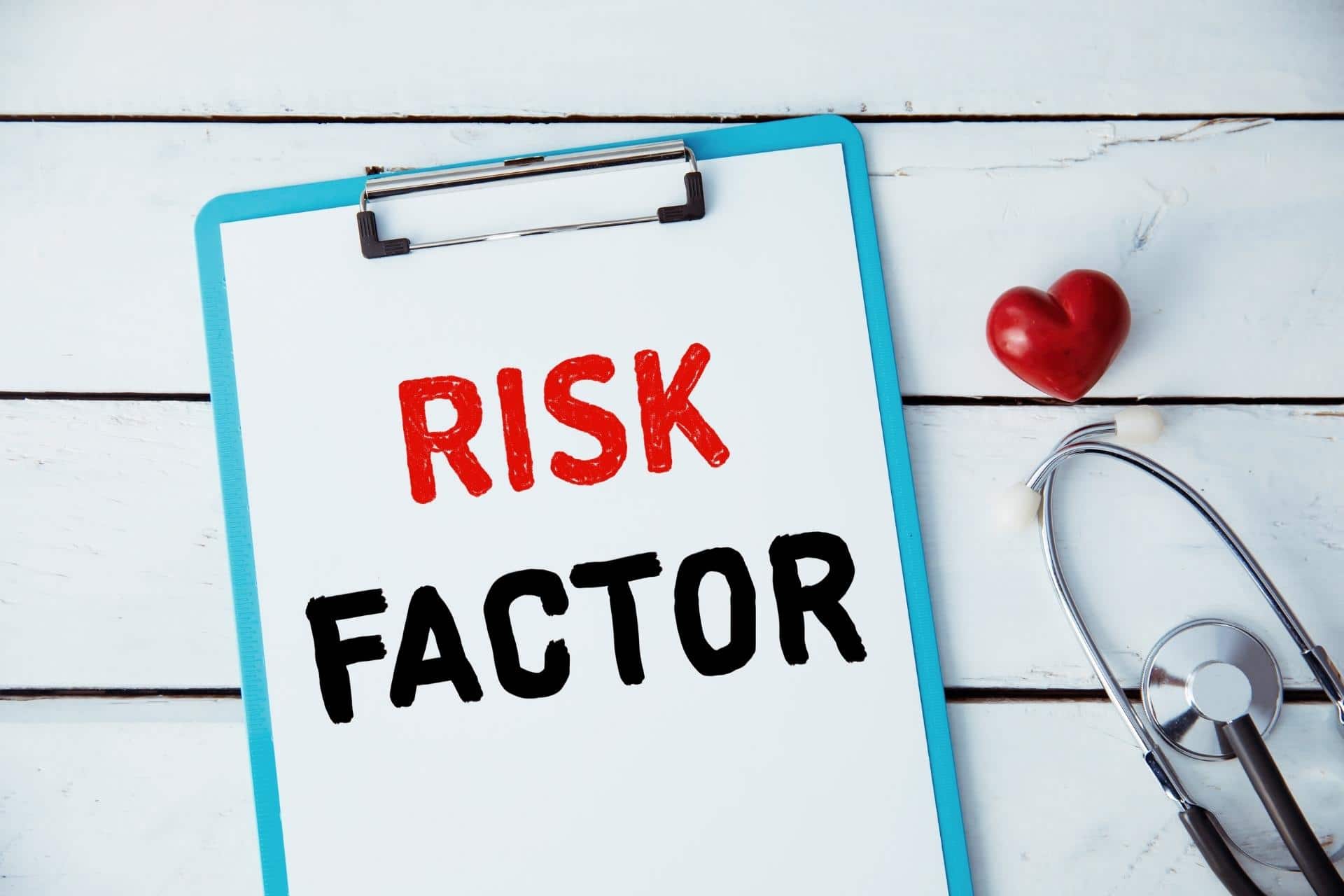
Our Leaf nurses can help with your questions about cannabis and CHS
Curious whether your current cannabis use puts you at risk of CHS? We can review your current usage and goals and provide information based on the latest research.
A pattern our Leaf nurses have seen when talking to callers across the country is that most callers know something is very wrong but they’re in denial about the severity of their condition and delayed asking for guidance due to the fear that they would be told they needed to abstain from cannabis use. So what is the solution? When it comes to CHS, we believe that wide-scale education regarding the warning signs may help consumers avoid crossing that threshold into CHS.
At Leaf411, we hear from people every day whose lives have been improved with plant-based medicine. Our fully-licensed, cannabis-trained registered nurses also regularly review the research on cannabis’s therapeutic potential.
Our Leaf nurses are also honest about the fact that cannabis may not be the best option for everyone and that in some instances, it may even be contraindicated, which means that we would advise against using cannabis in those cases.
We are happy to help with your questions about CHS or any other questions about cannabis and hemp. We provide unbiased, nonjudgmental guidance tailored to your specific situation.
Live in a state where marijuana is illegal? We can provide guidance on hemp-based options.
Visit our homepage and click on the “Let’s Talk” button to get started scheduling your Leaf411 guidance call.
The Leaf411 cannabis nurse hotline provides education and directional support to the general public about the safe use of legal cannabis. We partner with select business members who meet our rigorous standards to extend our education and outreach efforts.
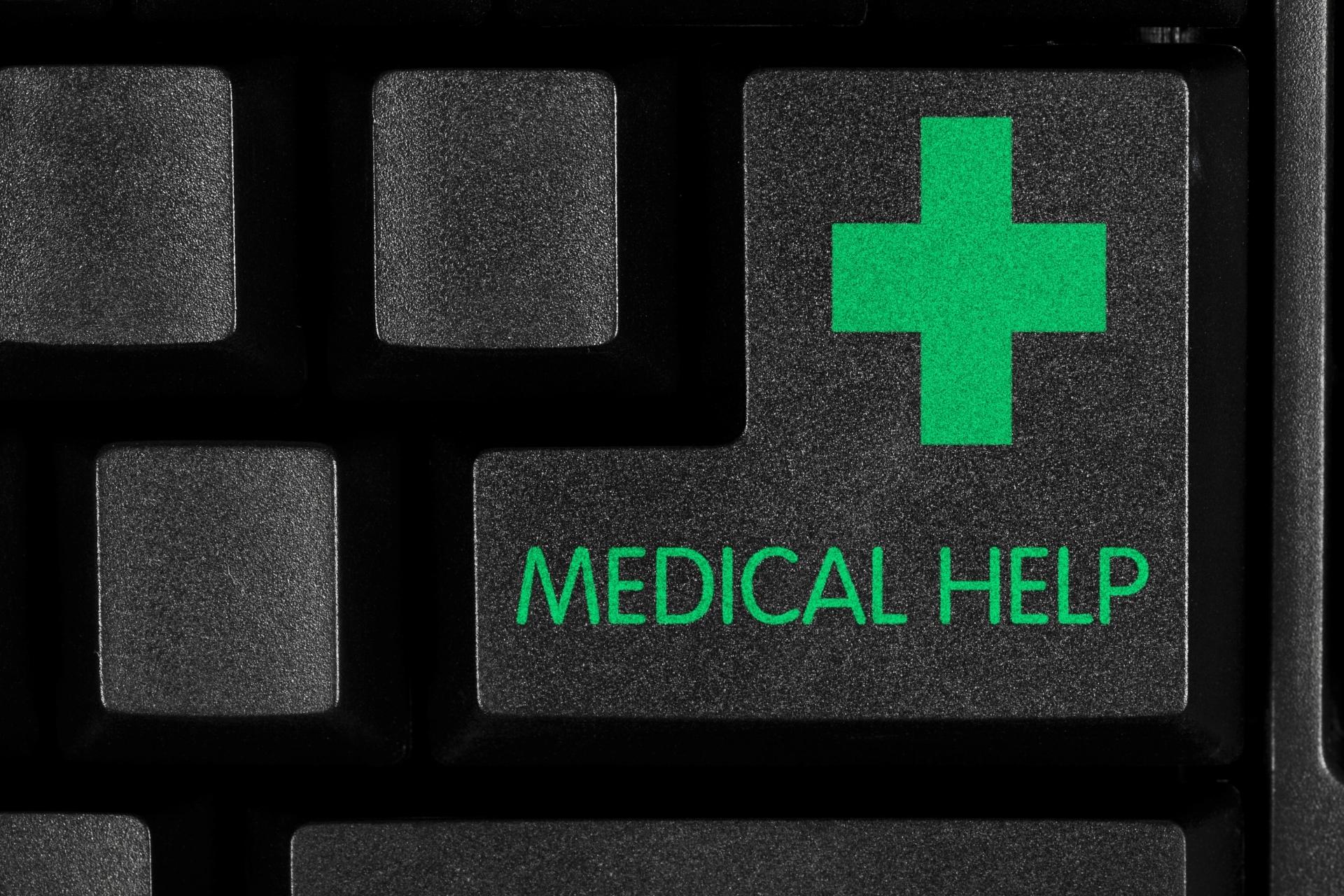
Updated: Leaf411 Cannabis Nurse Guidance Call FAQs
Updated: Leaf411 Cannabis Nurse Guidance Call FAQs
How to schedule your call with a cannabis nurse, what to do if you need to change your appointment, service fees and discount codes available from our business members.
If you follow Leaf411’s social media or receive our newsletter, you’re likely aware of changes we’ve implemented to build long-term sustainability of our services. This includes shifting to a scheduled guidance call model that ensures predictability and efficiency for both callers and our nurses. We’re also charging a modest fee for guidance calls, with discount codes available through our member businesses.
We know you may have questions about the fee-based scheduling process and updated our FAQs in response.
FAQs
1. Where do I go to set up an appointment?
From the Leaf411 homepage, click on the “Let’s Talk!” button, which will take you to the Leaf411 client portal hosted on the vcita scheduling app.
2. How do I schedule a guidance call? Should I choose the 30-minute or 15-minute option?
After you click on the “Let’s Talk” button on Leaf411’s homepage, you’ll be redirected to our scheduling page hosted on the vcita website.
Select the Leaf411 30-minute nurse guidance call if it is your first time contacting us through this online appointment service. Even if you’ve previously called the hotline, you will want to select the 30-minute option for your first scheduled appointment.
This 30-minute guidance call allows the nurse to cover one ailment or concern. For example, if you are seeking guidance on using cannabis for insomnia and also for migraines, those are two different issues that may require different products and approaches. Therefore, we would ask for you to schedule two separate appointments–one appointment to discuss cannabis and insomnia, and a different appointment to cover cannabis and migraine pain.
The 15 minute follow-up call is ideal for any remaining questions you have about your primary issue after the initial consultation. The shorter time takes into account the nurse already having your history with your previous 30 minute guidance call so it should allow enough time.
On the scheduling website, a calendar will pop up with available dates and times. Pick the time slot that works best for you and then complete your contact information and you’re good to go! The Leaf nurse will call you at the number you provide on the day and time you selected.
3. How much does a guidance call cost?
On January 17, 2022, we will begin charging a modest fee for our guidance calls. A 30-minute session will cost $25 and a 15-minute follow-up session will cost $25. Keep in mind that our guidance calls can help you quickly find the right products for your needs, saving you significant money spent on trial and error.
Where do the fees go? Your payment helps us cover expenses, including paying our cannabis-trained RNs a fair market rate for their work. Leaf411 continues to operate as a nonprofit nurse-led organization supported by business memberships, grants and individual donations.
4. My availability has changed after scheduling a call. What should I do?
We ask that you provide at least 48 hours’ notice if you need to change or cancel your guidance call. You can cancel the appointment through the confirmation email you receive or by calling the Leaf411 office at 844-LEAF411 (844-532-3411).
5. Will I be charged if I don’t show up for my guidance call?
The short answer is yes, you will be charged via the card on file unless you cancel or reschedule at least 48 hours before your consultation. This is similar to how other clinical service providers work. We encourage you to download and read our 2-page Terms of Service at this link if you have any questions.
Why do we charge for no-shows? We do not overbook calls. To ensure that we talk to all callers in a timely manner, we cannot accommodate callers who connect late to appointments or extend the appointment past the originally scheduled time frame.
6. Do you offer financial assistance?
We know that for some people, our modest $25 fee could be a hardship. Fortunately, our business members are providing discount codes covering the cost of a guidance call. You will need to contact one of our members directly to get the code. See the screenshots below for examples of this information on our members’ websites:
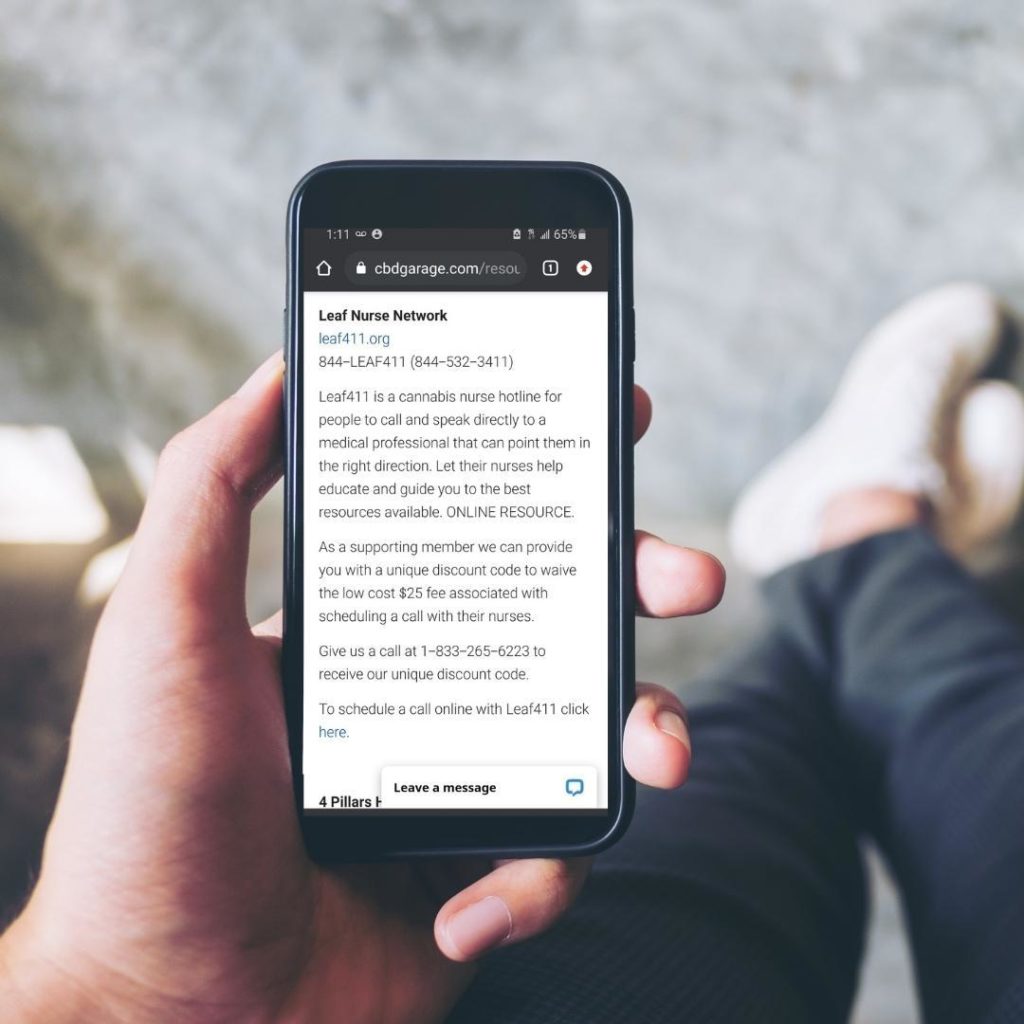
These codes are entered onto the scheduling website instead of having to enter payment information. See below for a screenshot of the payment box from the scheduling page, with the red arrow pointing to the “Have a coupon” option. When you’re using a discount code from one of our members, you’ll want to click on “Have a coupon” then enter your code. After your code is entered, you’ll be able to finalize the appointment.
7. Is my information safe with vcita?
You can trust that our new scheduling system provided by vcita will keep your information secure. The HIPAA-compliant site will allow you to pick a day and time when our nurses are available for a phone appointment, and even gives you an option to select your preferred nurse if more than one nurse is available at your preferred time. You’ll also have the ability to send and receive documents or messages to our team via the client portal, and will receive reminders about upcoming appointments.
8. What if I have a quick question, can I still call the hotline instead of making an appointment?
We are moving all of our services to the online appointment system. Even a quick question often has additional concerns—for example, an inquiry about a particular product might be followed up by questions about how it will interact with other medications or supplements.
If you are unsure about whether your question warrants an appointment or have other questions about scheduling, please call and leave a message at 844-LEAF411 (844-532-3411). A nurse will return your call within 24-48 business hours.
9. Does the nurse call me or do I call them at the appointed time? Is this a video call?
The Leaf nurse will call you at the number you provided at the date/time you selected when signing up for an appointment. The appointments are conducted only by phone, not by video at this time.
10. I wasn’t able to catch the nurse’s phone call/I was on another unexpected important call/didn’t hear my phone/etc. How many times will the nurse try to call me back during the 30-minute time slot? How can I call the nurse back? Will I get charged?
- The Leaf411 nurse will call you at the number you provided when you set up your appointment. If there is no answer, the nurse will send an email immediately stating we attempted to call at the scheduled time. The nurse will then switch over to the hotline (844-532-3411) and wait for 5 minutes. During this 5-minute window, you can call the toll-free hotline at 844-532-3411 to proceed with your scheduled appointment.
- Cancellations must be made at least 48 hours before your appointment or you will be charged a $25 no-show fee. However, we realize that sometimes life happens. Emergencies or financial hardships are always taken into consideration, so please contact Leaf411 if you need to cancel less than 48 hours before your scheduled appointment or if you had an emergency during your scheduled call.
11. What happens during the call?
Generally, you can expect the following steps during your call:
- Background information: We gather demographic data at the time of scheduling your appointment to ensure our services match caller needs. This information also helps us determine what cannabis and CBD hemp options exist based on laws in your home state. We may gather some of this information up-front or as part of the conversation, depending on the caller’s and nurse’s needs.
- Triage: Our Leaf nurses ask a series of questions to understand your main healthcare need and goals for using hemp CBD or marijuana, including whether you’re completely new to the plant or an experienced user. We’ll also ask questions about your activities of daily living to make sure that our education is tailored to your day-to-day realities.
- Reviewing your history of marijuana and hemp use: When considering marijuana or hemp CBD as a therapeutic tool, it’s important to factor in where you’re coming from. Are you an experienced current user, or was the last time you consumed over 20 years ago? Have your past experiences been positive or negative? It’s okay if you have hesitations or concerns based on past experiences! Our Leaf nurses are non-judgmental and provide balanced information based on your goals and preferences.
- Offering education and guidance: Once we have a clear sense of your health needs and goals, we provide evidence-based education and guidance that empowers you and can save you time and money when it comes to finding the best cannabis options for pain, insomnia, or other needs. Our Leaf nurses also understand that most callers want relief without impairment so that they can go about their daily lives. Depending on your previous experience, we may start with Cannabis 101 education on your endocannabinoid system, followed by general guidance on product types and routes of administration. For example, our Leaf nurses may suggest starting with a ratio product that contains specific amounts of THC and CBD. Our Leaf nurses also take into account any physical limitations that you may have to recommend easy-to-use product formats, like gummies that can easily be divided into smaller doses.
12. What will not be provided during the nurse guidance call?
It’s important to understand what types of information we can and cannot provide based on our professional scope of practice. Our Leaf411 nurses work within their scope and standard of practice. Registered nurses (RNs) provide guidance and education; however, they do not practice medicine and are not legally allowed to give specific dosages to take at a specific time of day for a specific length of time.
If you have multiple health concerns that are beyond what our nursing guidance can provide, we will suggest a consultation with a cannabis-trained advanced practice nurse (Nurse Practitioner) or a cannabis-trained physician who can take you into their private practice as a patient. We have wonderful resources for trained cannabis clinicians listed under our Resources tab on our website.
Unfortunately consultations with private practice cannabis clinicians are not covered by insurance carriers yet, so please check pricing in advance and assume that it will be an out-of-pocket expense for you.
13. What happens after my call?
Our Leaf nurses understand that as you begin trying different products and learn more about cannabis, additional questions may come up. We take notes as part of our nursing practice which will be uploaded to your online account following the call. That makes it easy for us if you have follow-up questions so that we can pull up those past notes and pick up right where we left off. You can also schedule your follow-up consultation with the same Leaf nurse you previously talked to.
Schedule your Leaf411 cannabis guidance call today!
With our recent transition to a schedule-based system, our goal is to make trustworthy guidance on cannabis use more accessible and convenient for you. We look forward to hearing from you! Visit our homepage to get started scheduling your nurse guidance call, or call us at 844-532-3411 if you have questions about the new scheduling system.
The Leaf411 cannabis nurse hotline provides education and directional support to the general public about the safe use of legal cannabis. We partner with select business members who meet our rigorous standards to extend our education and outreach efforts.
Rethinking RSO for Cancer or Other Health Concerns
If you’ve been researching cannabis for health, you’ve likely come across the term “RSO” but may wonder what exactly this less-common cannabis product is, and whether you should try it
Medically reviewed by Katherine Golden, RN, and Eloise Theisen, NP
Written by Denise Rustning
RSO, also known as Rick Simpson Oil, Phoenix Tears, full extract cannabis oil (FECO) or full spectrum oil (FSO) has gotten a lot of hype for its potential to treat cancer or other significant health issues. We sometimes get questions about RSO on the hotline, and our nurses are up-to-date on the research on RSO.
While RSO has its place in the world of cannabis therapeutics, it’s not a magic bullet and may not be the best option for your particular health concern. Today we’re going to provide some background information on RSO to help you assess whether it’s worth your time and money to seek out this potent cannabis extract.
What is RSO?
RSO is named after Rick Simpson, a Canadian medical marijuana activist who popularized the process for creating fully-extracted cannabis oil (FECO), using pure light aliphatic naphtha or 99% isopropyl alcohol as solvents to extract all of the plant’s cannabinoids, terpenes and other phytochemicals. At the time, Simpson used only high-THC strains, resulting in an extract with a high concentration of THC when compared to other cannabis products.
In other words, RSO is a product type, just like edibles or flower–it is not a brand or a specific strain.
When Rick Simpson first started making RSO, he also created treatment protocols for using RSO topically or orally. However, it’s important to note that Simpson was not a doctor and he was basing his protocol on the known science at the time in the early 2000s.
A lot has changed since then, and our Leaf nurses are up to date on the latest research around RSO. We encourage you to book a consultation with us before adding this high-potency product to your wellness regimen.
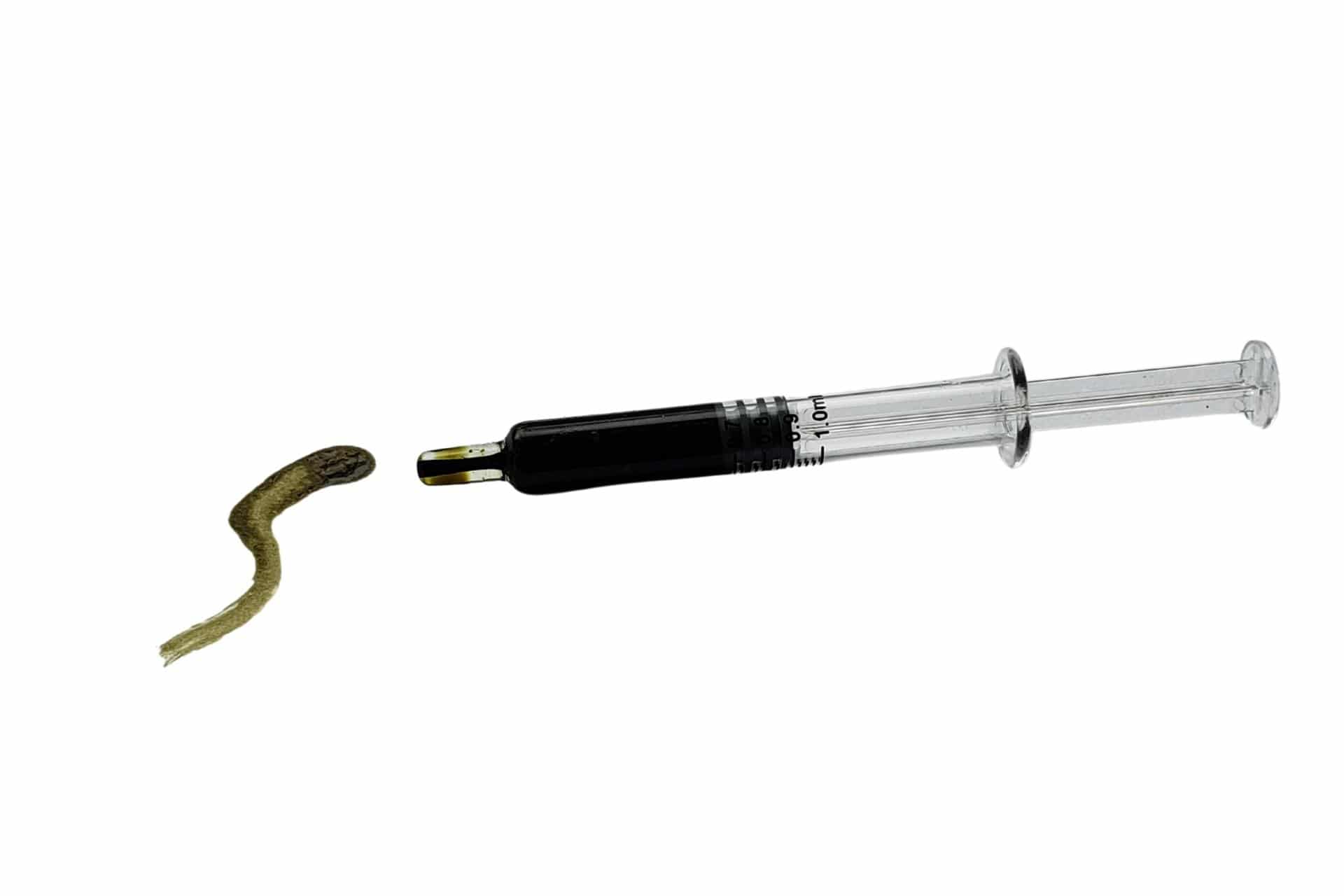
What RSO looks like
When you see an RSO product, the first thing that will stand out is its appearance which can be as a thick dark greenish-brown oil to a product that looks like honey, often packaged in syringes or capsules. Don’t get confused by the syringe! The syringe allows the thick liquid to push out slowly, though it can still be tricky to handle and precisely dose due to the thick, sticky nature of the oil.
RSO has been suggested online and by manufacturers to be used on the skin, taken by mouth, or mixed into edibles. Leaf411 nurses do not ever suggest applying a topical product to an open wound unless suggested by a wound care specialist and/or dermatologist. RSO should not be smoked or vaped.
How strong is RSO?
You’ll find different brands offering RSO, though RSO is not as popular as edibles, flower or other types of concentrates.
RSO products containing high THC concentrations can be found at some legal dispensaries. Each RSO syringe may contain 600mg or more of THC, but you’ll want to check the specific product label for cannabinoid test results since amounts may vary.
Depending on the concentration, each militer (ml) in the syringe may provide 100mg or more of THC. For comparison, many of our Leaf411 members’ cannabis edibles contain only 10mg THC per piece, which is 1/10th the amount you’ll likely find in a single ml of RSO.
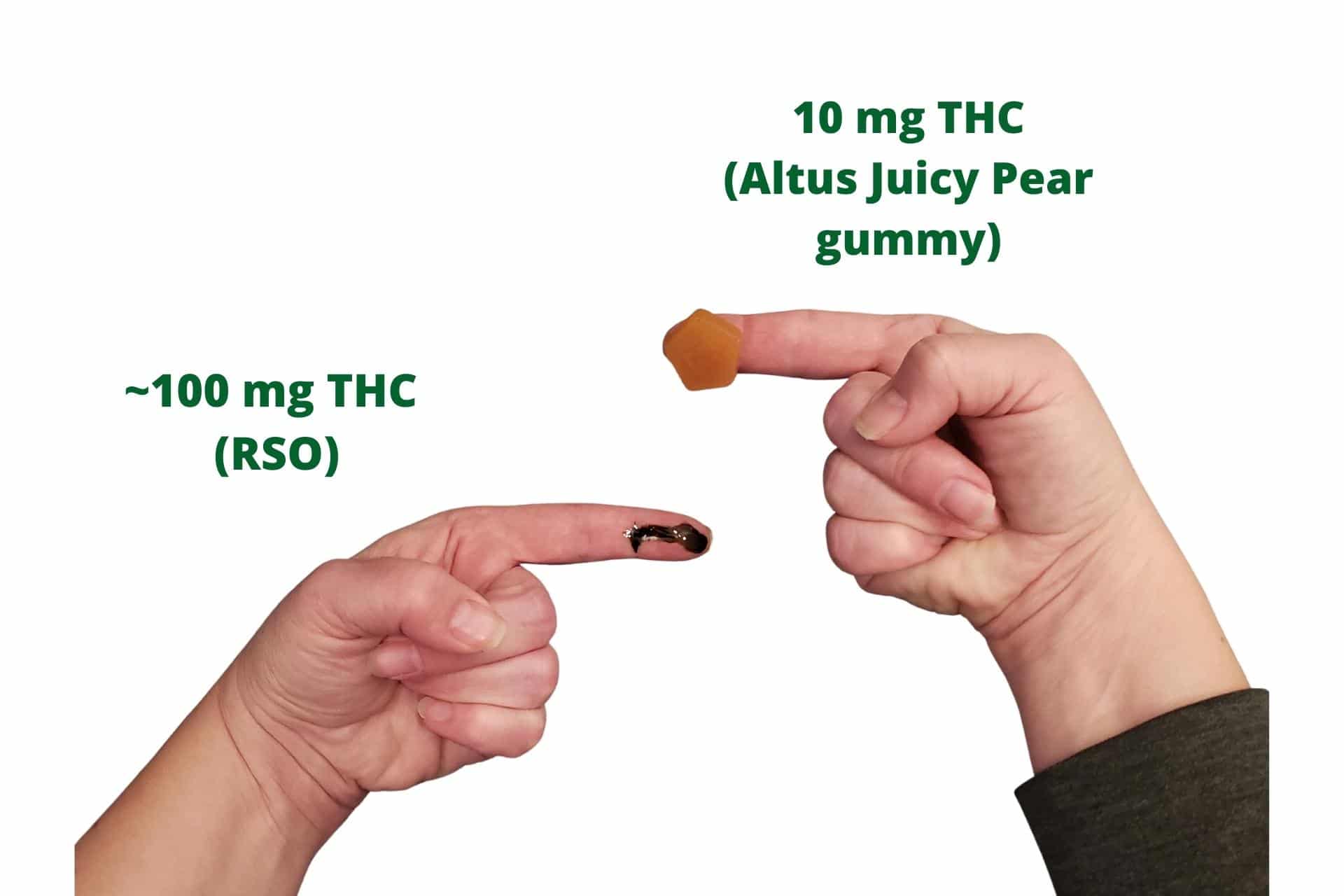
Variations in today’s RSO products on the market
Since Rick Simpson first created his legendary extract, manufacturers have improved extraction processes. Also, product testing on the legal market provides more transparency around the amount of THC contained and other cannabinoids within each RSO syringe.
However, as the term “RSO” has become more popular, some brands have begun using the term more loosely for concentrates that are very different from what Simpson originally created.
Some manufacturers are now creating RSO ratio blends which feature THC plus significant amounts of CBD, CBG or other cannabinoids. Keep in mind that these high-powered options are different from the original RSO and may have very different effects. This doesn’t mean they are the wrong product for you, it just means to be aware of the ingredients in every product you purchase.
Also, the cannabis cultivar (strain) matters when it comes to RSO’s effects, since the extract’s power rests in a unique and potent combination of full-plant compounds. However, most manufacturers don’t provide this level of detail on their packaging or test results. Even the same brand’s RSO product can change over time due to variations between different plant harvests.
All this is to say that RSO can be a tricky product to buy, especially if consistency, accurate dosing, and potency are your top priorities.
Here are some examples of RSO/FECO products on the market today:
- Takoma Wellness RSO products (Washington, DC, medical dispensary)
- Herbiculture RSO products (Burtonsville, MD, medical dispensary)
- Peake Releaf RSO products (Rockville, MD, medical dispensary)
- A Therapeutic Alternative RSO products (Sacramento, CA, dispensary)
- Myriam’s Hemp Enhanced CBD FECO (Online hemp CBD retailer)
RSO is not a magic cure
RSO has gained a reputation for its powerful healing abilities, but unfortunately there is no evidence-based research on what types of conditions that RSO might help most with. In some cases, it may even do harm if someone delays research-backed treatment options while experimenting with RSO. Some research also suggests that RSO could contribute to more aggressive growth with certain cancers. To learn more about the challenges from an oncologist who has used cannabis as part of their patients’ treatment regimen, click this link.
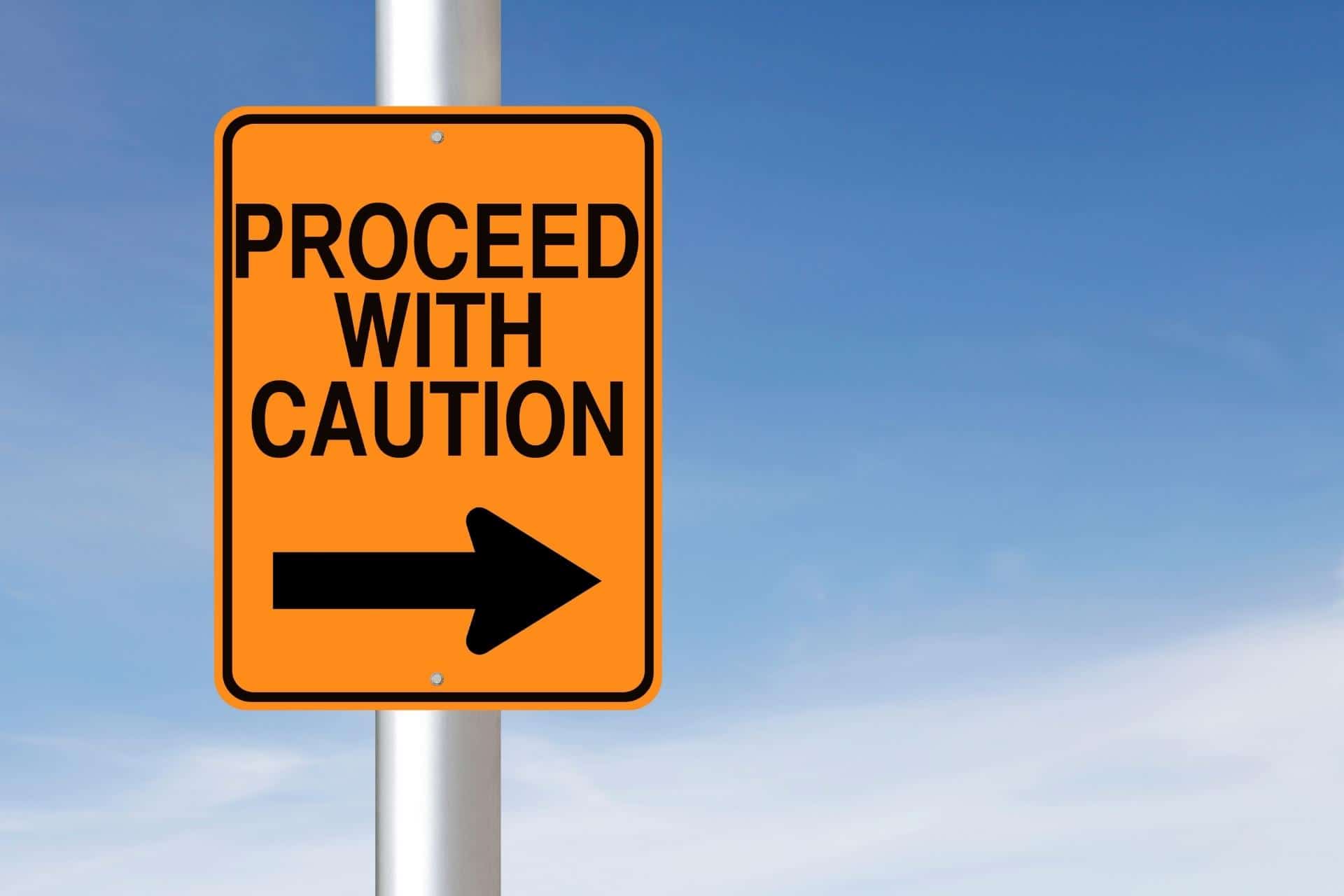
How do you use RSO?
The cannabinoids in RSO have already been activated, so there’s no need to heat up the oil before using it. RSO can be added to food and beverages or used to make edibles, but remember that a very small amount goes a long way–RSO is very potent!
RSO can also be used topically on the skin, but only with the guidance of your clinical team that is providing care for your skin condition.
At Leaf411, we do not recommend RSO in a new, inexperienced user because of the potency and challenges with accurate dosing, especially with a concentrate as potent as RSO. Even increasing your dose by a little bit can make a big difference in the types of effects you feel. RSO’s high potency can lead to increased side effects like dry mouth, rapid heart rate, anxiety, paranoia and even hallucinations.
RSO is not designed for injecting–don’t be fooled by the syringe! We also recommend against vaping or smoking RSO due to the solvents used in its production, which can be damaging to lungs if vaped and explosive at high temperatures.
Store your RSO at room temperature away from light, and make sure it is secure and out of reach of pets and children.
Questions about RSO? Our cannabis-trained nurses can help!
Chances are that if you’re looking at RSO options, you are facing a serious health concern. The last thing you want to do is make things worse or complicate your treatment options.
While your primary care doctor and specialist team may not fully understand cannabis therapeutics, our Leaf nurses do. Our fully-licensed cannabis-trained RNs can help point you in the right direction when it comes to understanding the research and finding the right questions to bring to your medical treatment team. We don’t replace specialists like oncologists, but we are able to look at the evidence and provide general information on different cannabis options, including RSO. We can also connect you with cannabis-trained clinicians who can review your records and make specific recommendations based on your case.
Click this link for our online scheduling service and find a day and time for your Leaf nurse consultation call.
The Leaf411 cannabis nurse hotline provides education and directional support to the general public about the safe use of legal cannabis. We partner with select business members who meet our rigorous standards to extend our education and outreach efforts.

Understanding the Role of Cannabis-Trained RNs
Learn about the cannabis guidance our Leaf RNs provide
Medically reviewed by Whittney Wacker, RN, Katherine Golden, RN, and Eloise Theisen, NP
Written by Denise Rustning
Leaf411’s fully-licensed Leaf Nurse Network are experts in general nursing as well as in using cannabis as a therapeutic tool. When talking with our nurses, you’ll discover they offer an incredible wealth of knowledge on cannabis, as well as deep nursing knowledge on a variety of medical conditions, health and wellness.
And as fully-licensed registered nurses (RNs), our nurses are always careful to stay within their professional scope of practice when providing information and guidance.
We know that most people are not familiar with nursing scope of practice, so today we’re sharing some examples of the types of information that our Leaf nurses can and cannot provide.
Our fully-licensed, cannabis-trained Leaf RNs can provide the following types of guidance:
- General guidance on all things cannabis, including different cannabinoids (THC, CBD, CBN, etc.), terpenes and how to use different product formulations. All guidance from the Leaf411 nurses is derived from evidence-based information and education.
- Information about specific products on the legal market, including both products made by our supporting members as well as non-members.
- Safety considerations based on your overall health and lifestyle. For example, if someone is struggling with COPD or other lung conditions, our nurses may suggest edibles or tinctures instead of inhalation.
- Potential interactions with other medications you are taking. Keep in mind that while the nurses can identify potential interactions, they cannot make specific recommendations for changing your medication dosing–only your prescribing clinician can do that.
- Starting dose ranges for different product types based on your past experience using cannabis and hemp, as well as your overall goals for using plant-based medicine.
- Guidance on using cannabis to support optimal functionality of your endocannabinoid system.
- Information and resources for you to share with your medical team.
This list is just the tip of the iceberg when it comes to the practice standards that guide our Leaf nurses. For a more in-depth understanding, we recommend checking out the NCSBN National Nursing Guidelines for Medical Marijuana, available for download at this link .
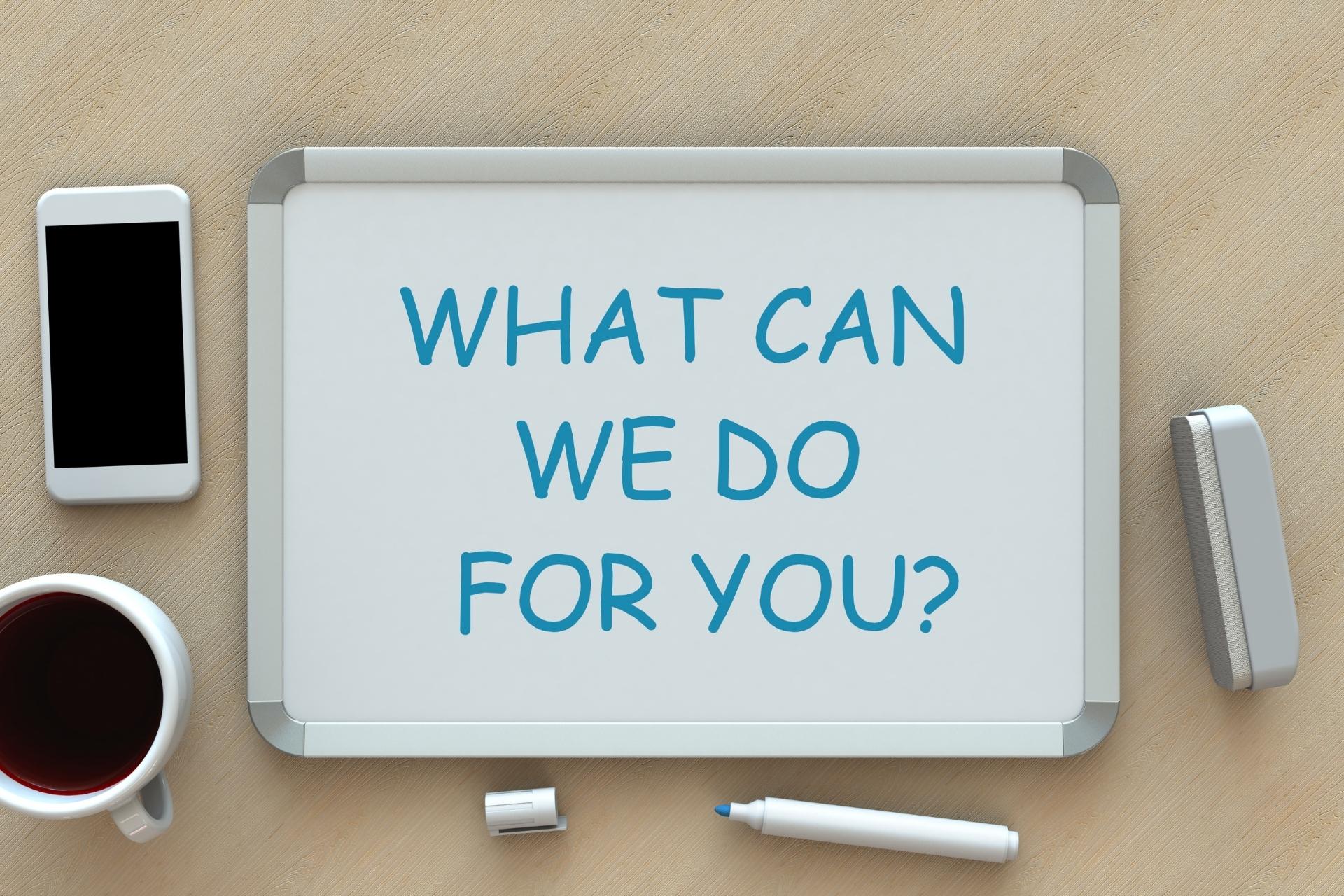

Our Leaf nurses can help with most questions. However, there are a few areas that fall outside of the nurses’ scope of practice as registered nurses. Following are some types of information our nurses cannot provide:
- Our nurses cannot provide specific dosing for cannabis products. Providing a specific dose, or amount, is akin to prescribing a medication, and only a medical doctor or advanced practice registered nurse–nurse practitioner (NP) with prescribing privileges can do that. However, our RNs can suggest ranges and provide guidance on how to titrate your dose up or down.
- Our nurses cannot recommend starting or stopping medications.
- Our nurses cannot diagnose a medical condition.
- Our nurses cannot order tests or interpret test results.
- Our nurses cannot make final decisions about care or treatments.
Who do you go to for help with more complex questions or issues? At Leaf411, we have an extensive network of clinician peers (doctors and nurse practitioners) with advanced training on cannabis who we can recommend for more complex issues. Keep in mind that these clinicians are independent from the Leaf411 organization and will have their own fee schedules, with those costs likely not covered by insurance.
Schedule your Leaf nurse consultation today!
Ready to schedule your Leaf nurse consultation? Visit our home page and click “Let’s Talk” to get started. You can also call us at 844-LEAF411 (844-532-3411) if you have questions about our scheduling system.

Filling the Information Gap on Cannabis and Health
Leaf nurses offer specialized knowledge on cannabis medicine questions
Medically reviewed by Katherine Golden, RN, and Eloise Theisen, NP
Written by Denise Rustning
If you’ve searched for information on using cannabis for health, you know how challenging it can be to find sources you can trust. Even your primary care doctor may be uncertain, skeptical, or restricted by their healthcare employer from talking about cannabis’s therapeutic value. In some cases, physicians may offer guidance based on patient anecdotes or their own experience using cannabis, yet cannabis is not a one-size-fits-all solution.
On the other hand, Leaf nurses do have specialized education and knowledge on cannabis therapeutics that allows them to tailor their guidance to individual patient needs. What does this look like in practice?
In a recent Society of Cannabis Clinicians article, Leaf411 Founder and CEO/ED Katherine Golden, RN, and Leaf411 CNO Eloise Theisen, NP, share a anonymized case study of a patient who contacted Leaf411 for help after their doctor suggested a 4:1 CBD:THC tincture for pain. From the article:
“A woman was advised by her primary care doctor to try a 4:1 CBD/THC tincture for pain. The doctor told the woman, ‘That ratio worked for my husband’s pain, so it could potentially help you as well.’ The doctor did not discuss how much or how often to take cannabis or possible side effects with other medications. Unfortunately, the woman did not understand the level of THC in a 4:1 product. She took it in addition to the CBD preparation she had already been using. The combination led to a trip to the emergency room after experiencing rapid heart rate and paranoia. With proper guidance, this adverse event could have been avoided.”
You’ll want to read the rest of the article at this link to learn how a Leaf nurse would have guided the patient to reduce the risk of this type of situation, taking the patient’s full hemp and cannabis history into account and guided the patient to specific product types.
Check out the case study and a sample transcript of how the Leaf nurse would have provided guidance at this link.
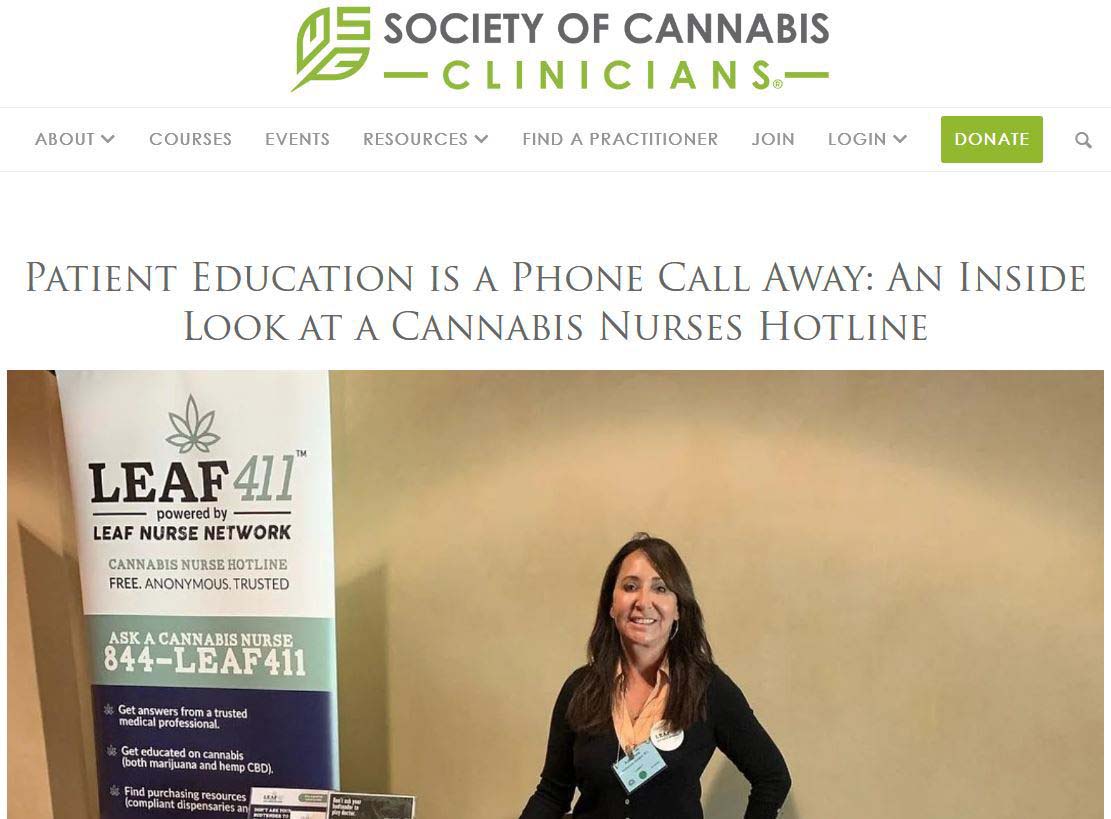

Ready to schedule your consultation with a Leaf nurse?
Leaf411 is moving to a schedule-based model to better serve the public while improving our operational efficiency. Our new model allows you to schedule your call with our Leaf nurses at a day and time that works for you. No more worrying about having to leave a message and waiting for a call back! Get started today by visiting our home page and clicking on the “Let’s Talk” button to schedule your Leaf nurse consultation.
Also, our hotline is still available if you have a question about scheduling an appointment or if you don’t have access to a computer. Call us at 844-LEAF411 (844-532-3411) and leave a message and a nurse will call you back within 24-48 business hours.
We look forward to helping you with your cannabis health questions!
The Leaf411 cannabis nurse hotline provides education and directional support to the general public about the safe use of legal cannabis. We partner with select business members who meet our rigorous standards to extend our education and outreach efforts.
